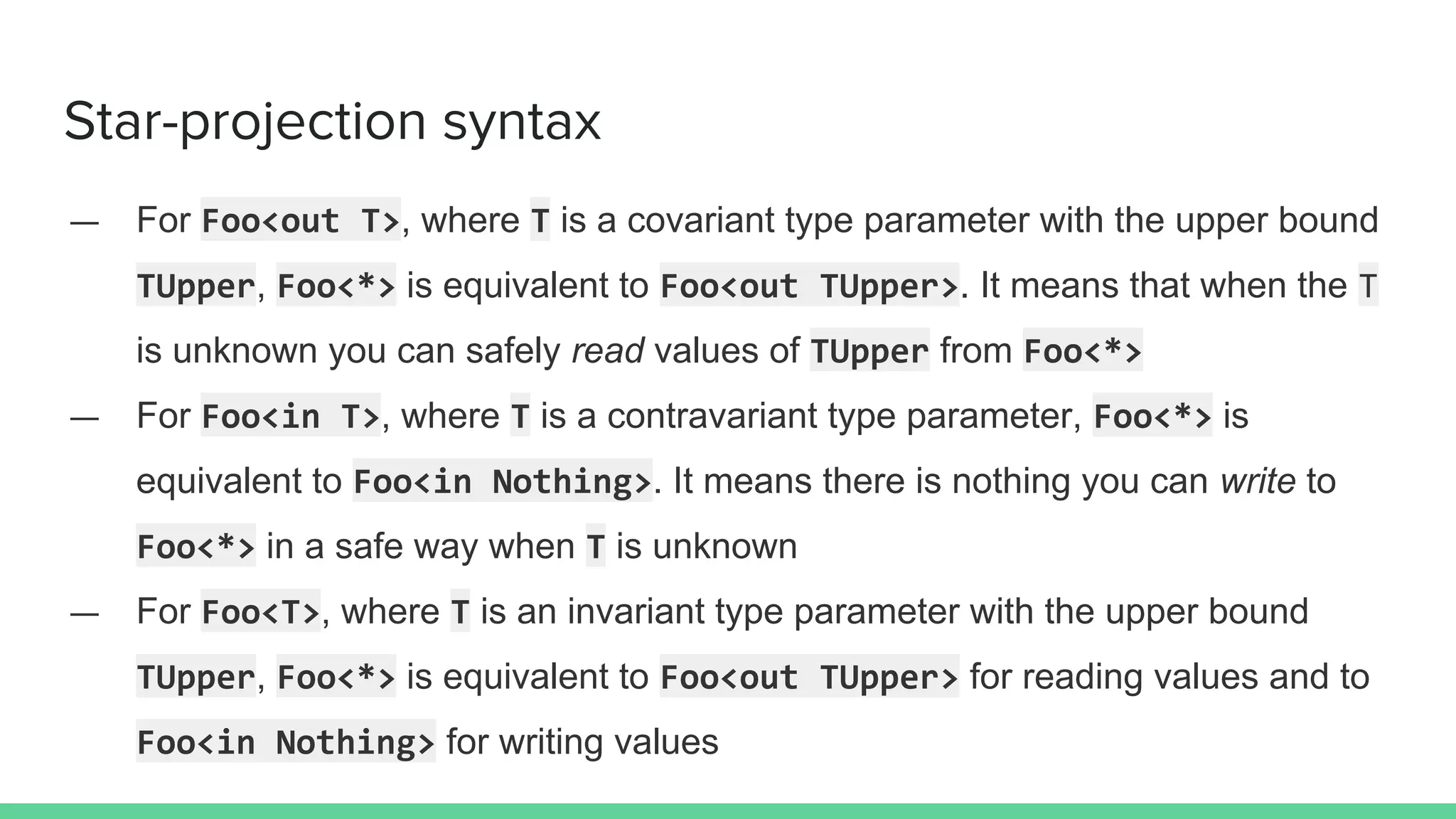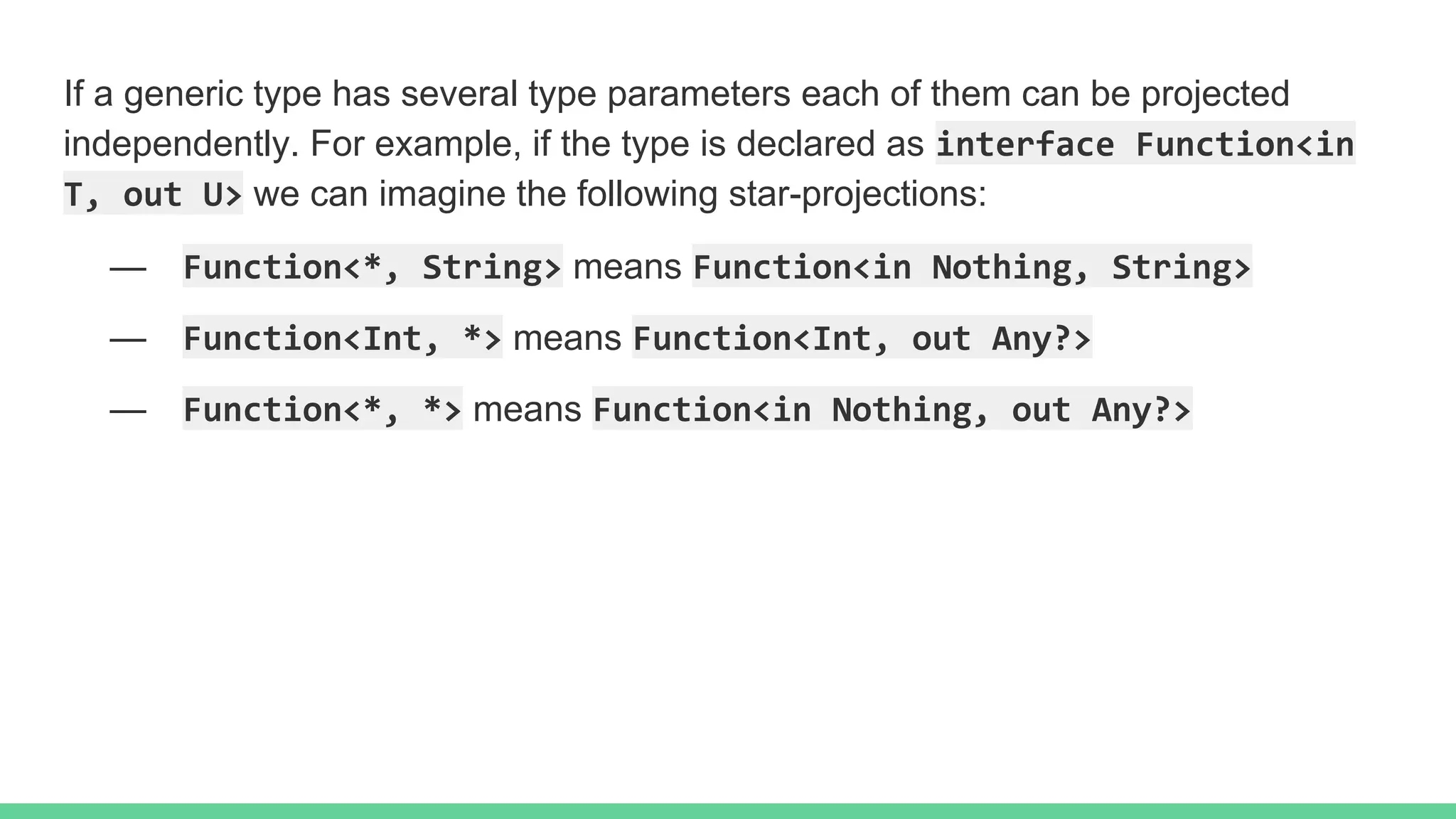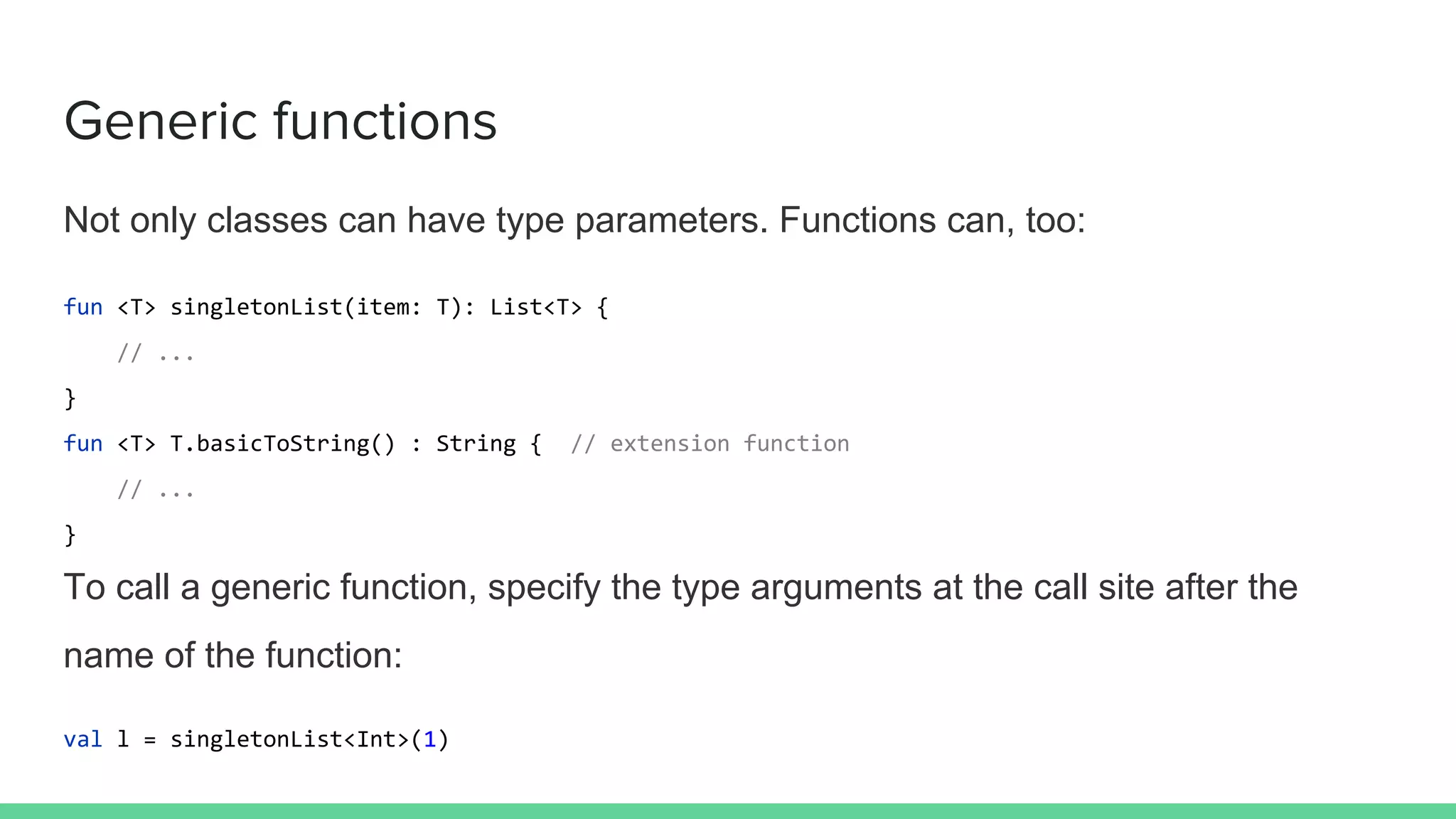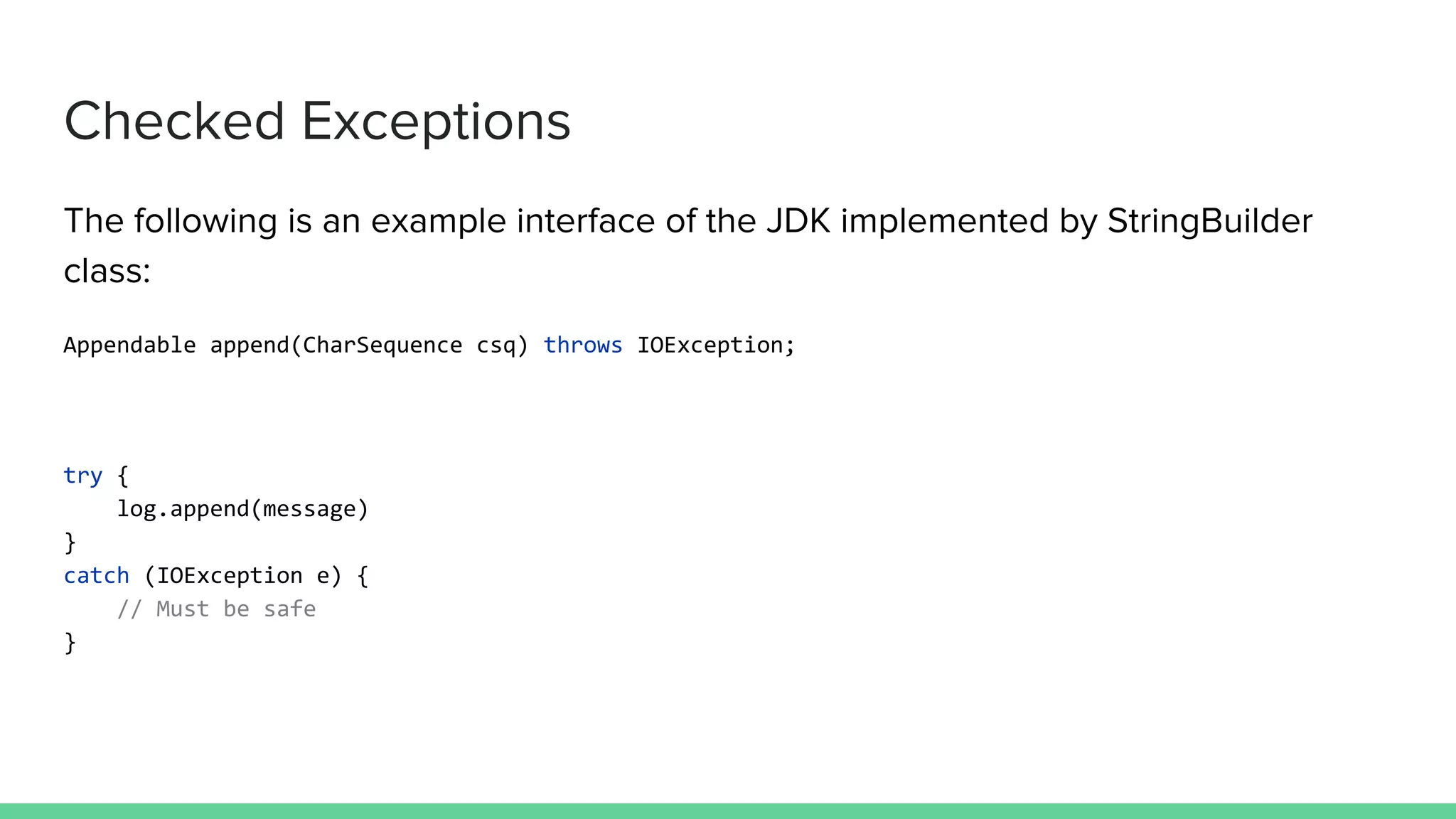Kotlin addresses several issues in Java by controlling null references in the type system, eliminating raw types, making arrays invariant, defining proper function types, allowing use-site variance without wildcards, and removing checked exceptions. It fixes null references by allowing nullable types and non-null types, provides null-safe calls and operators like Elvis and safe casts, and filters nulls from collections.
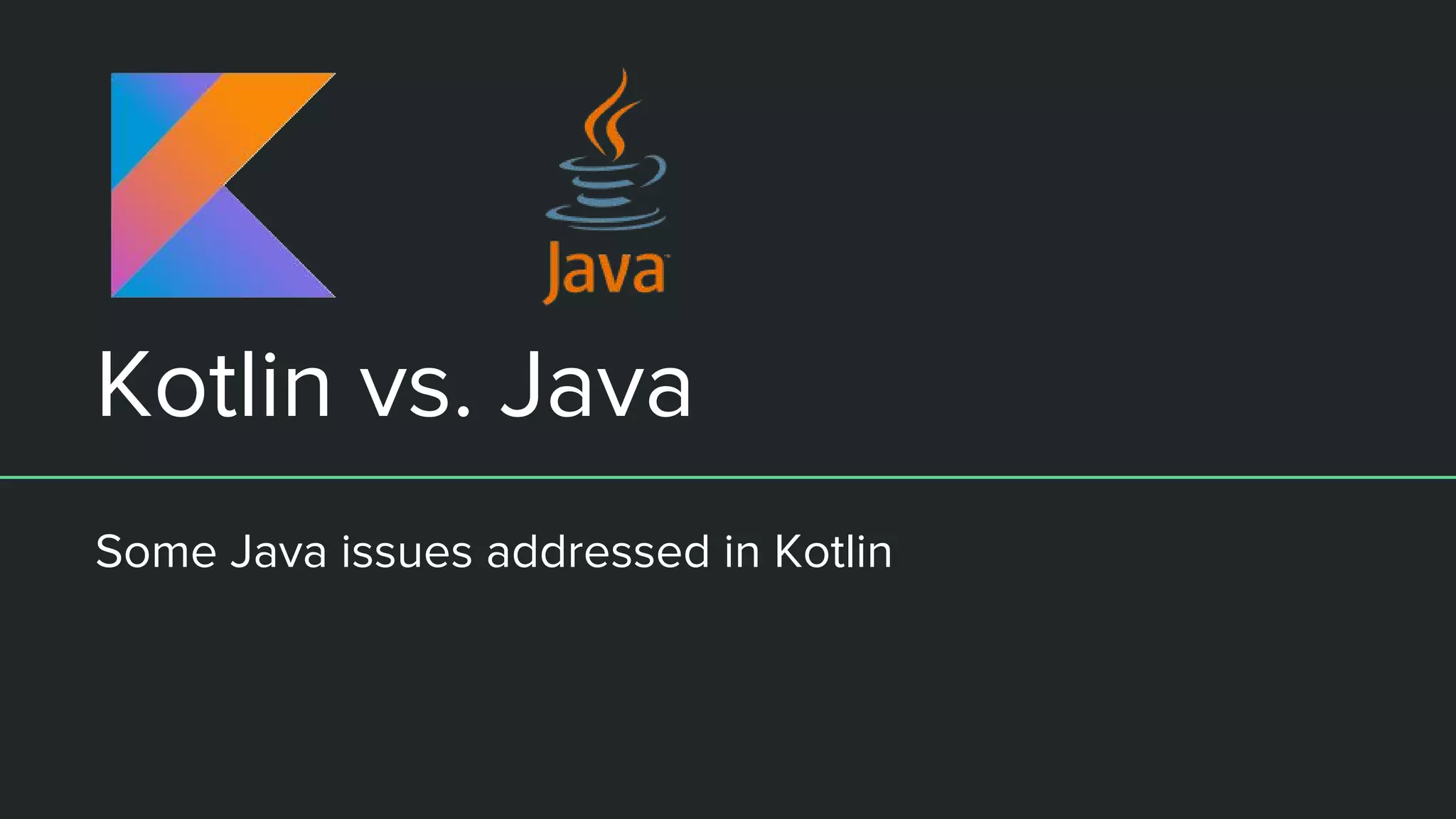
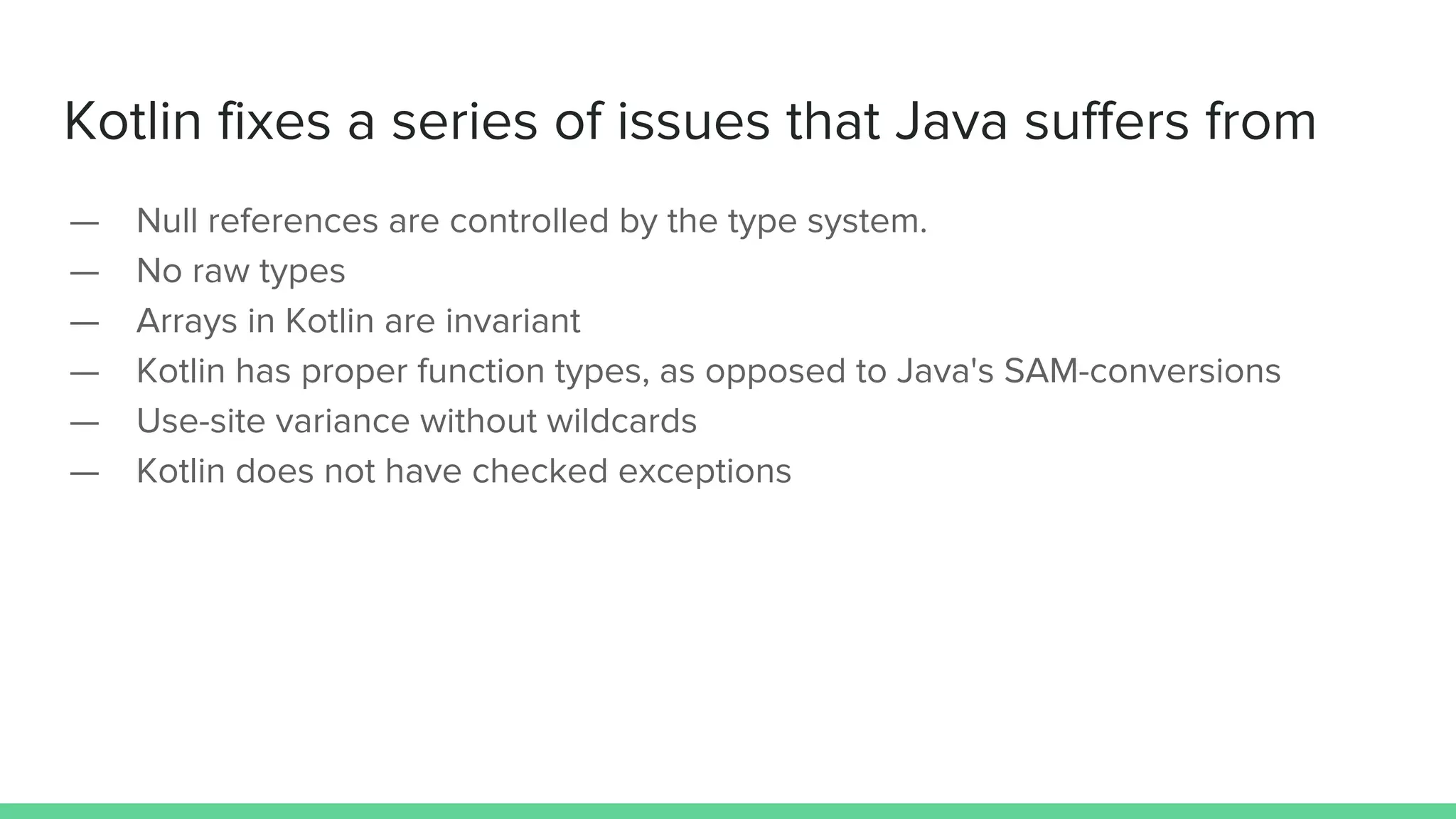

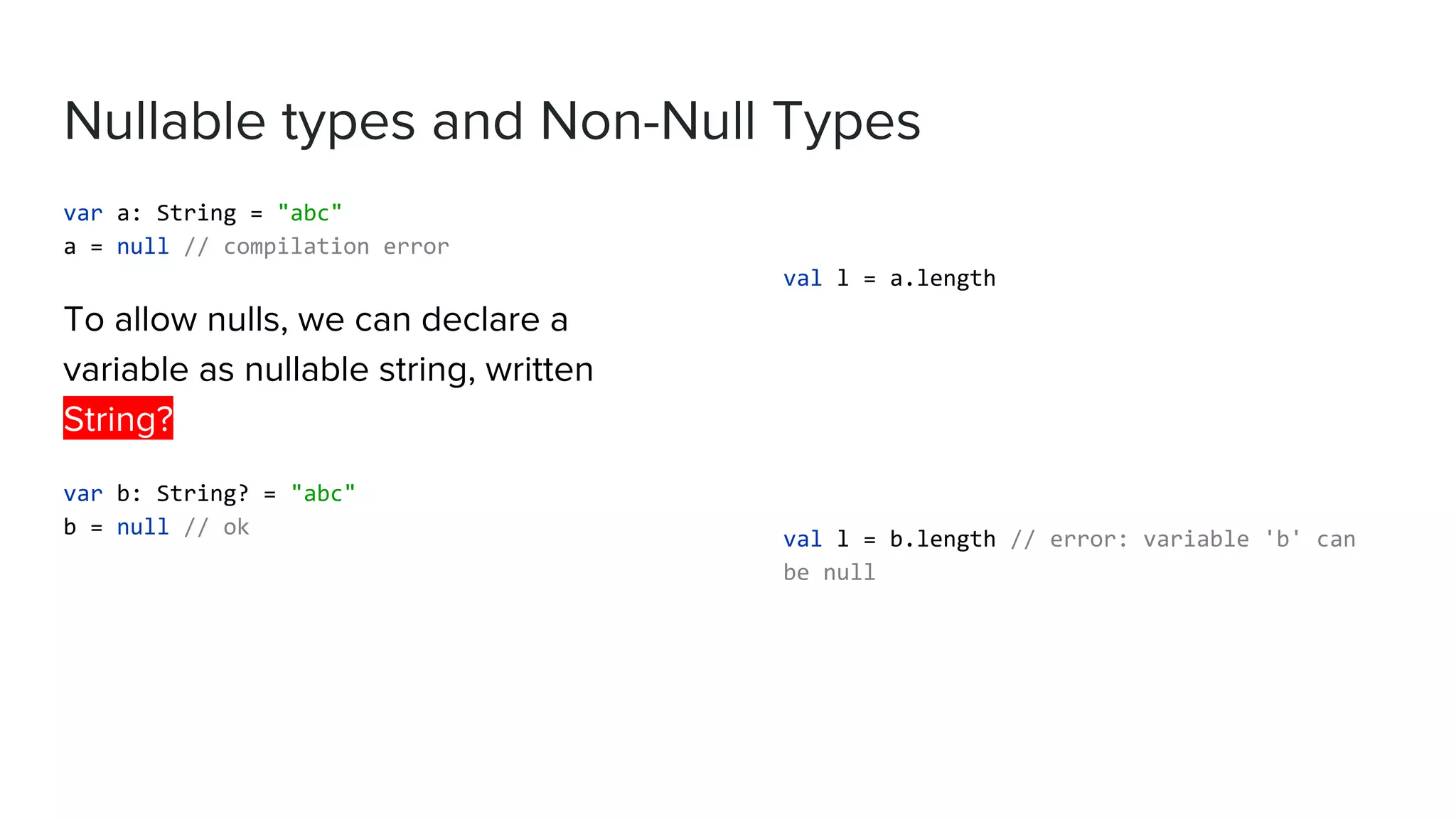
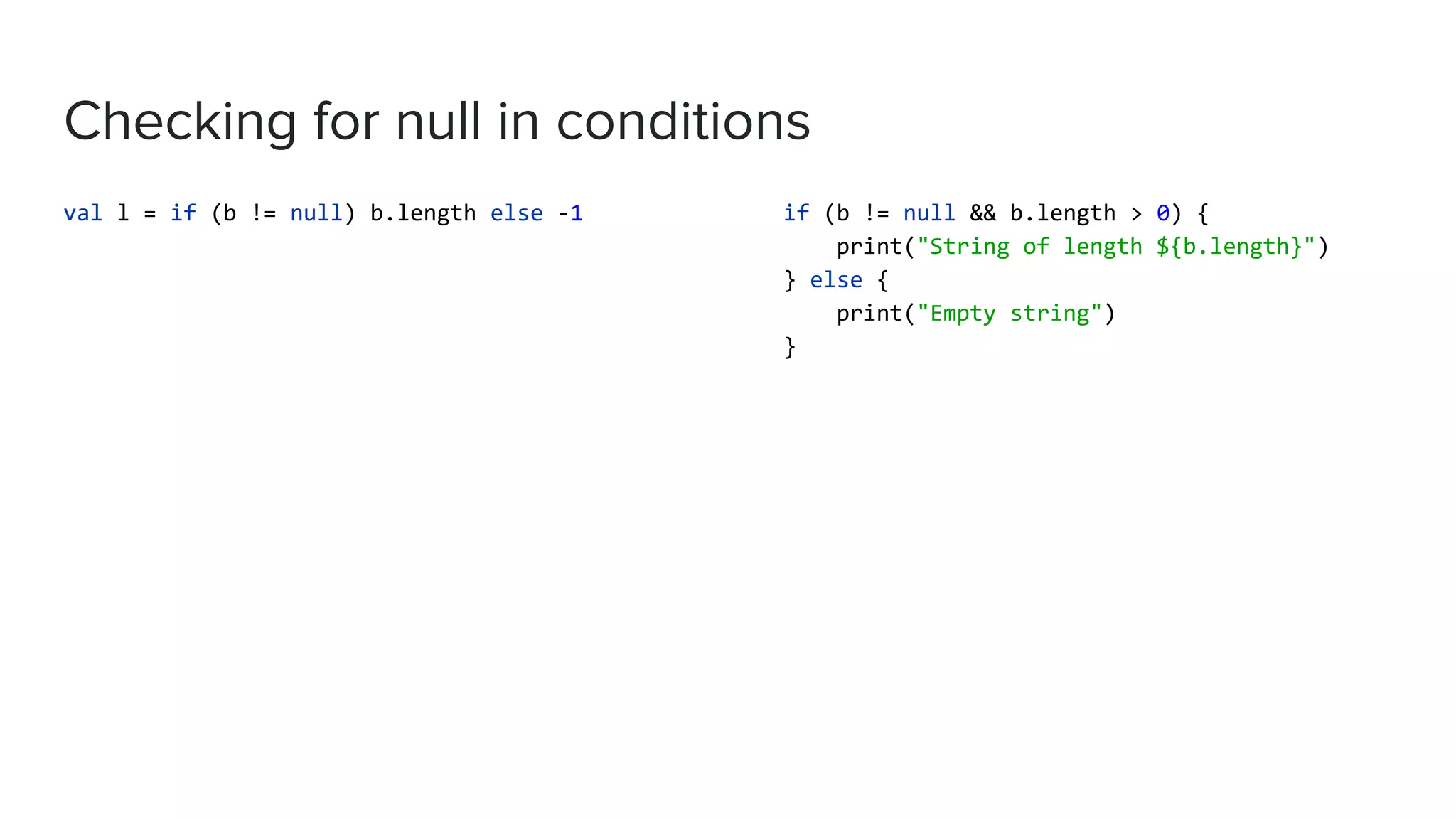
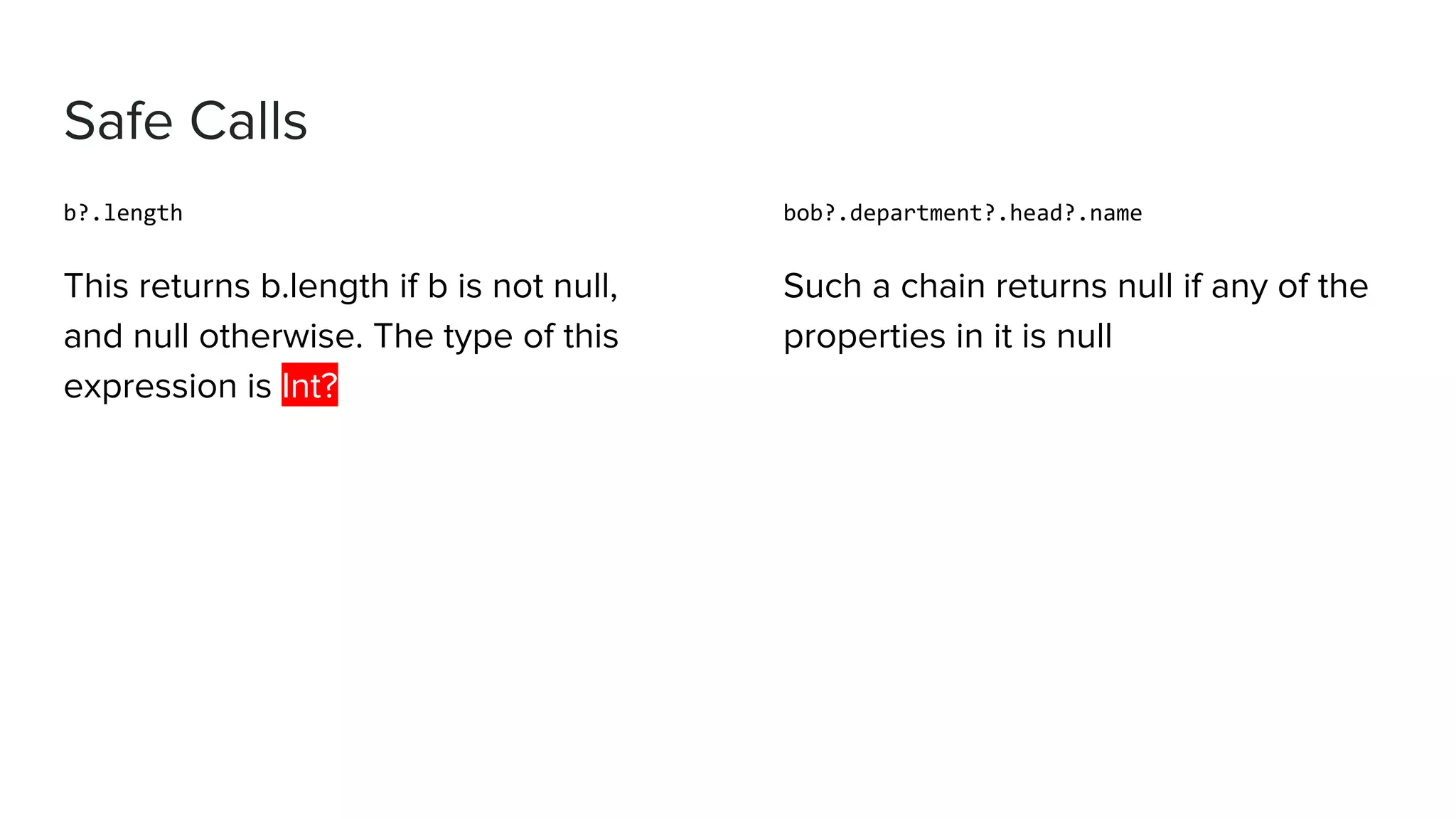
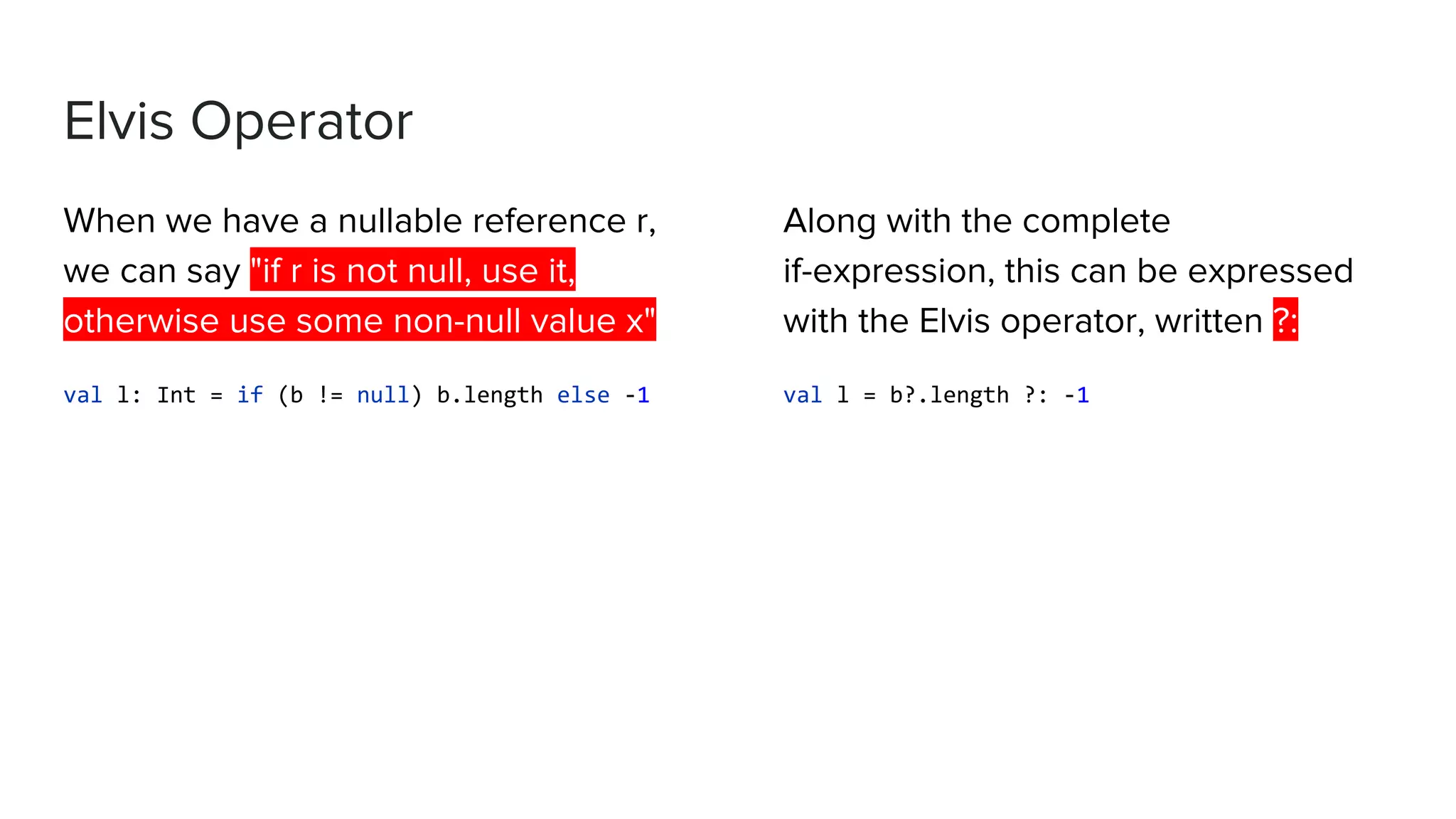
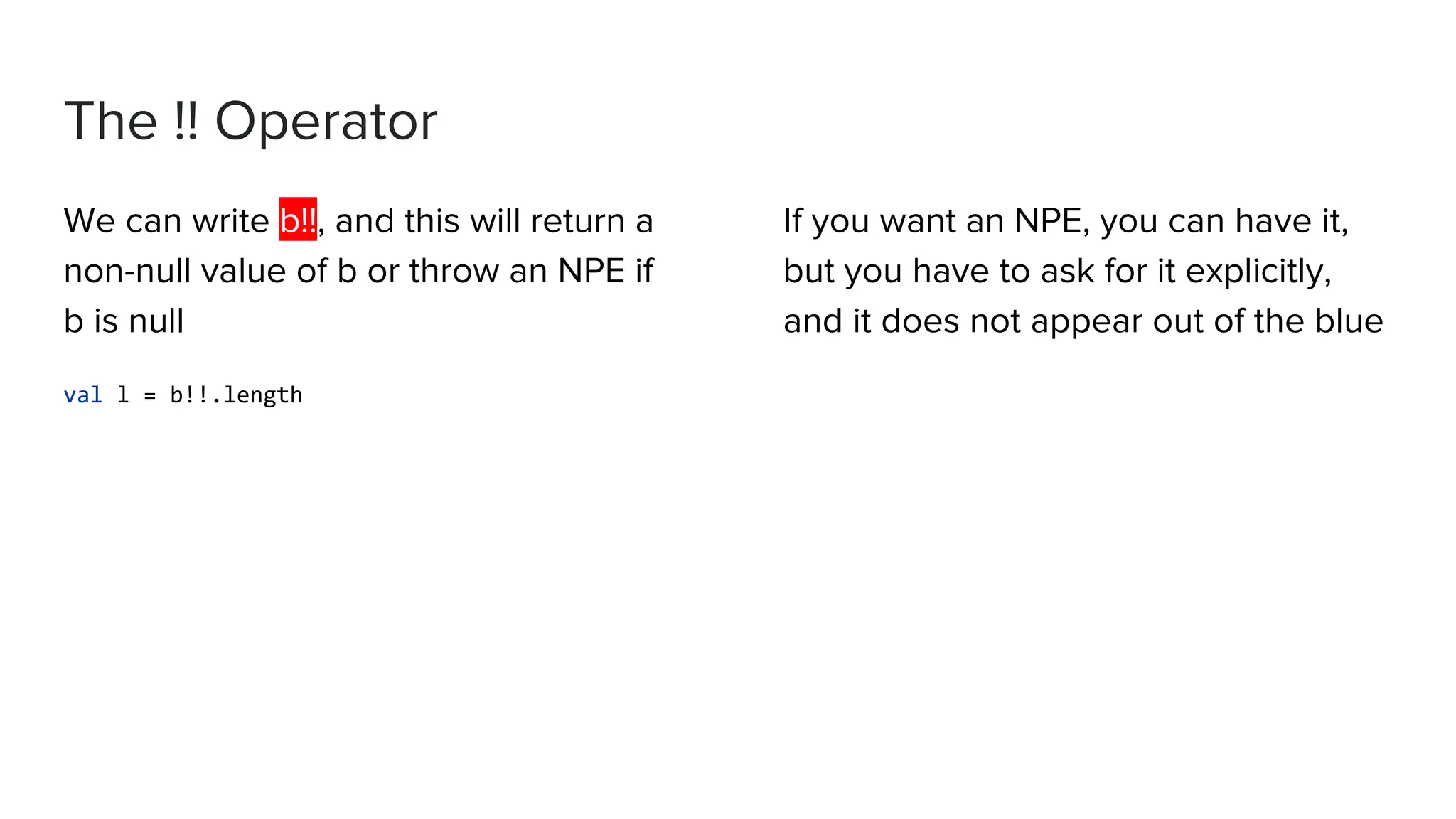
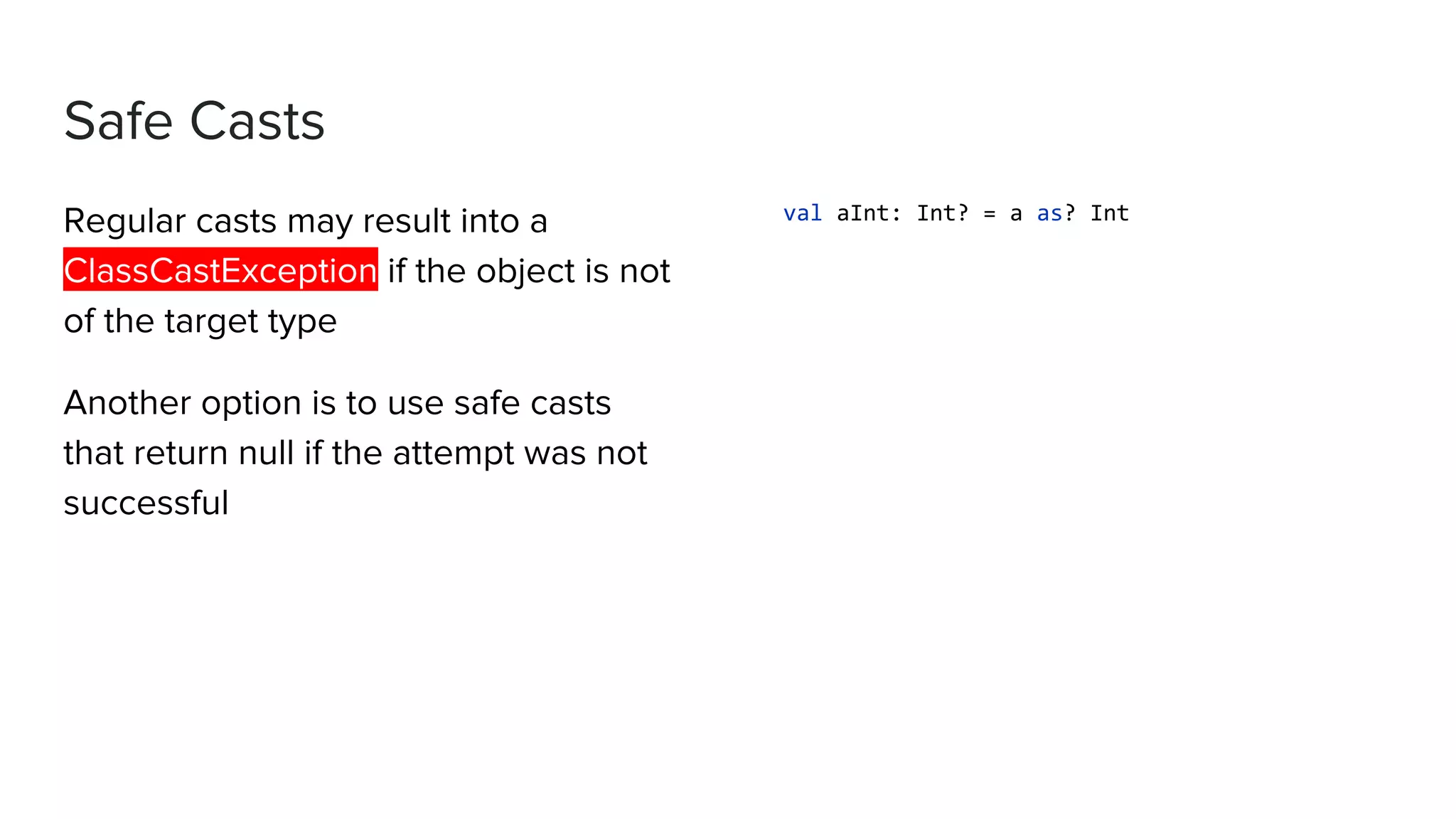
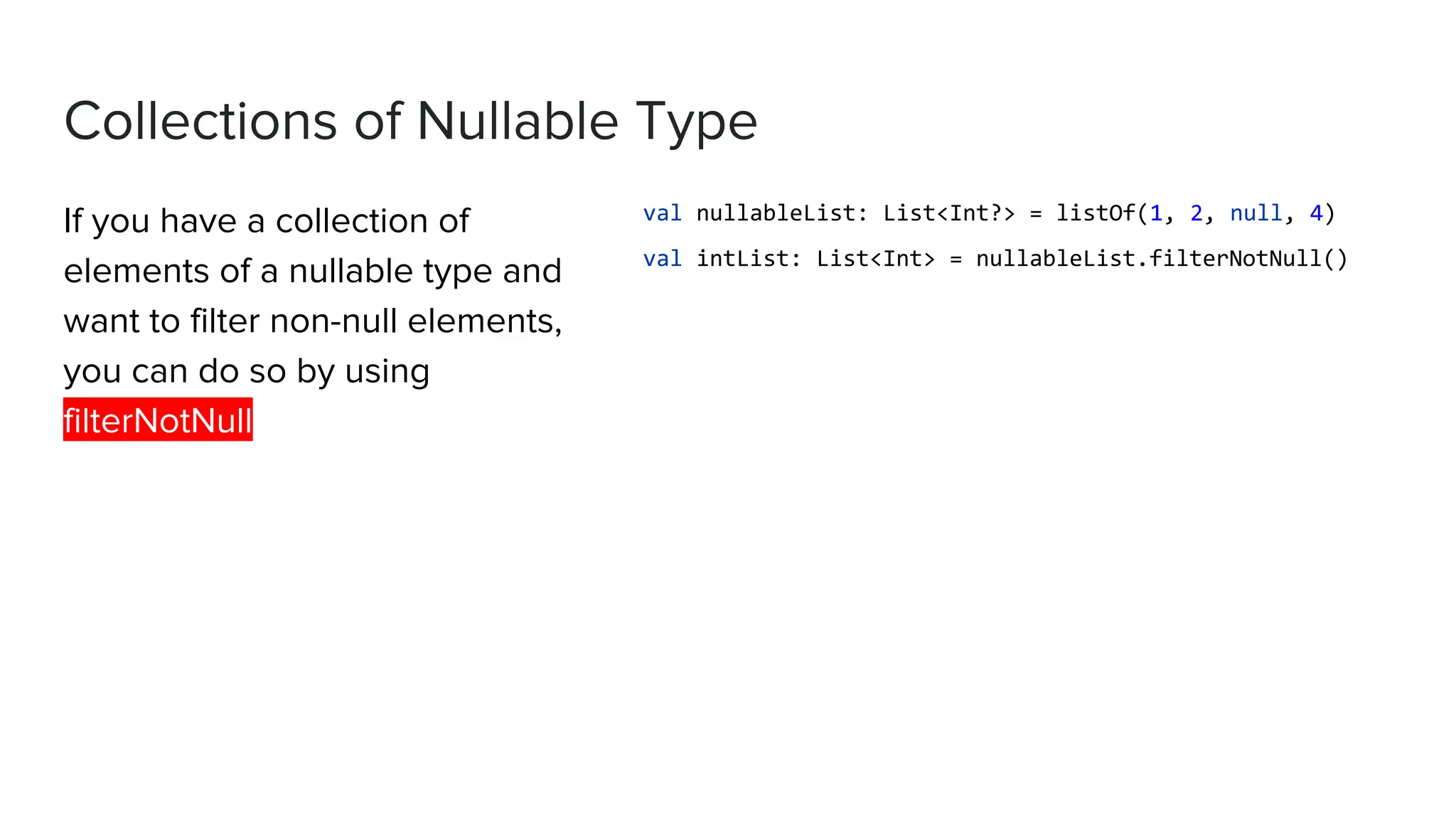
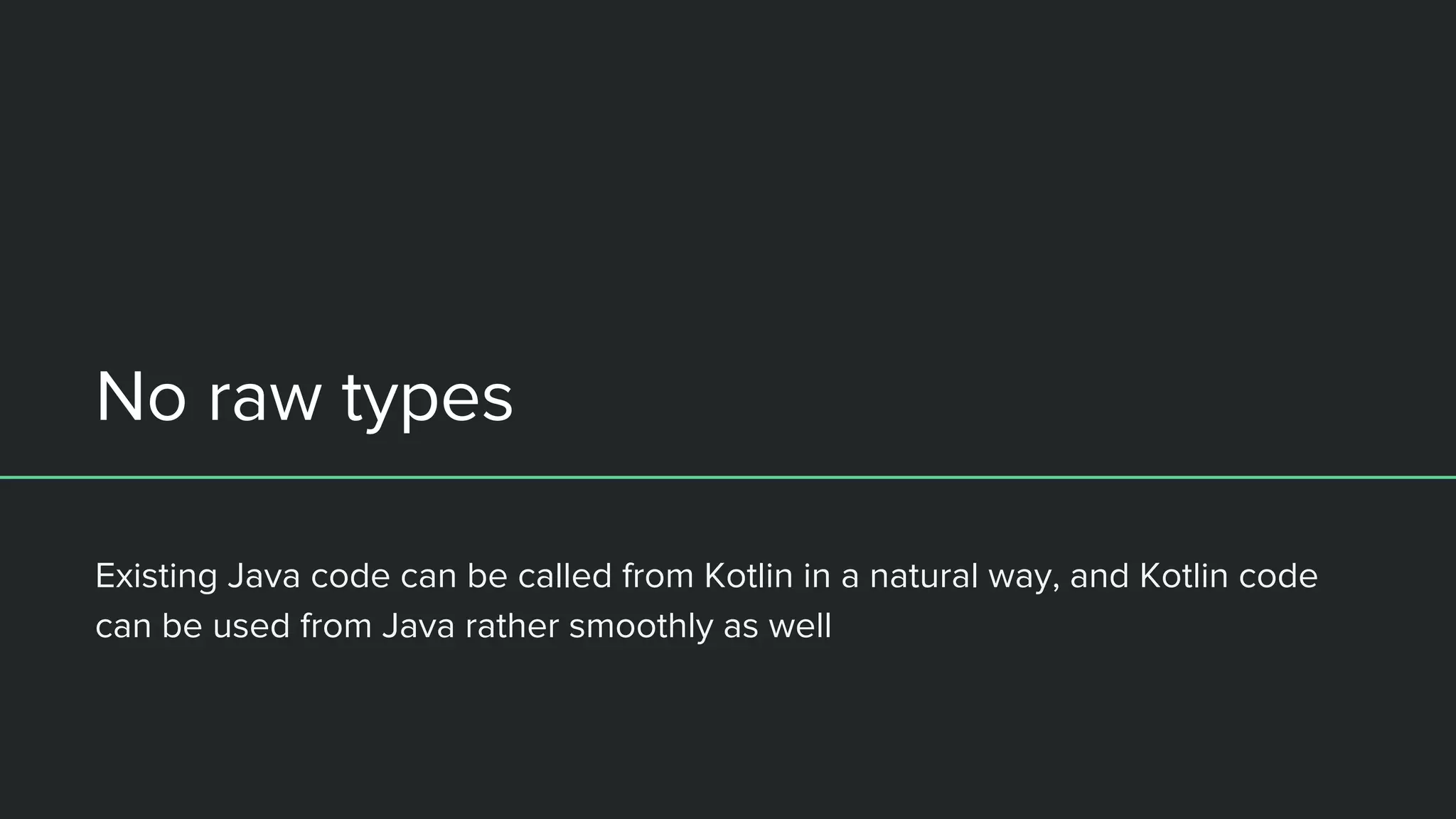
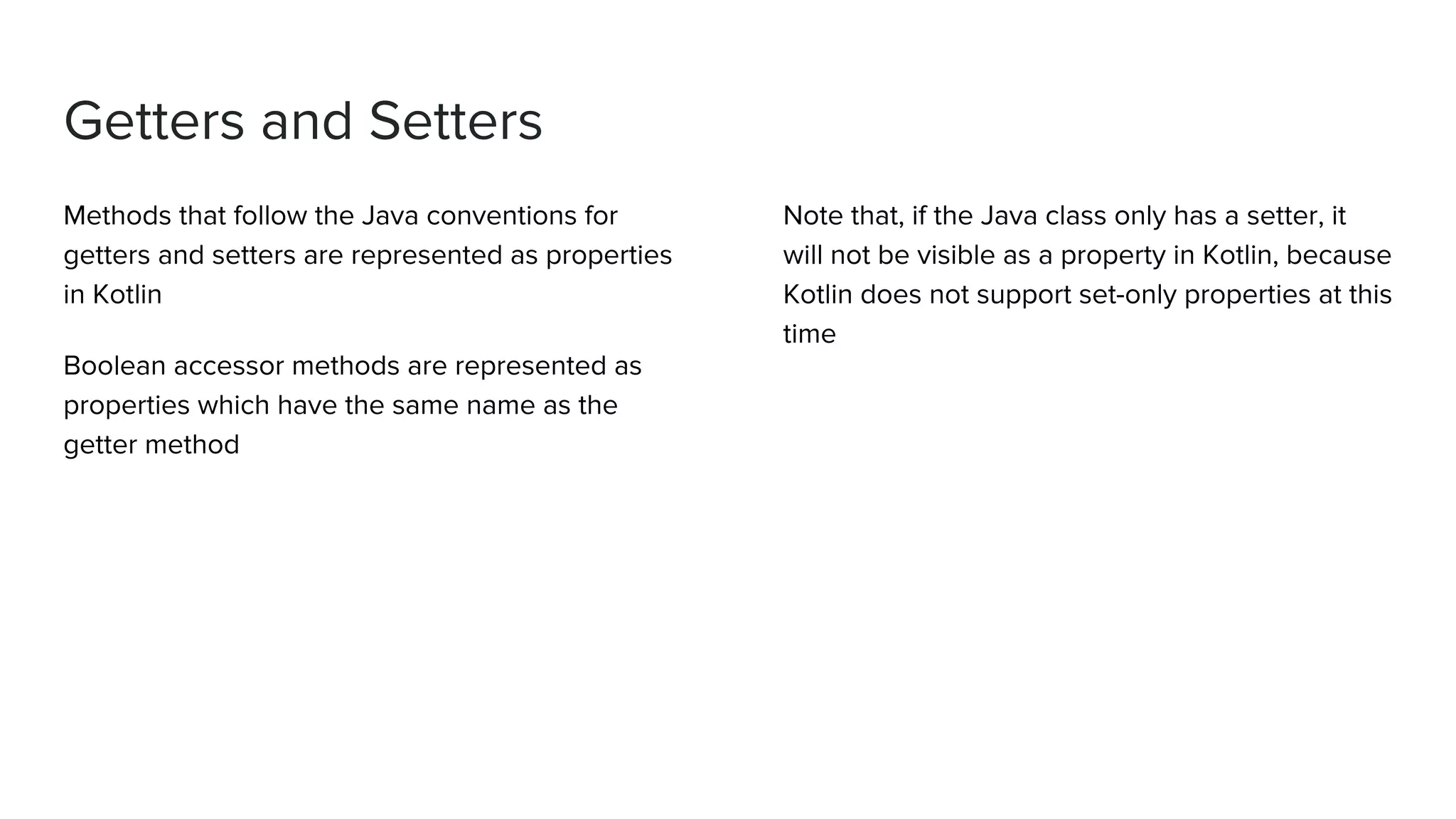
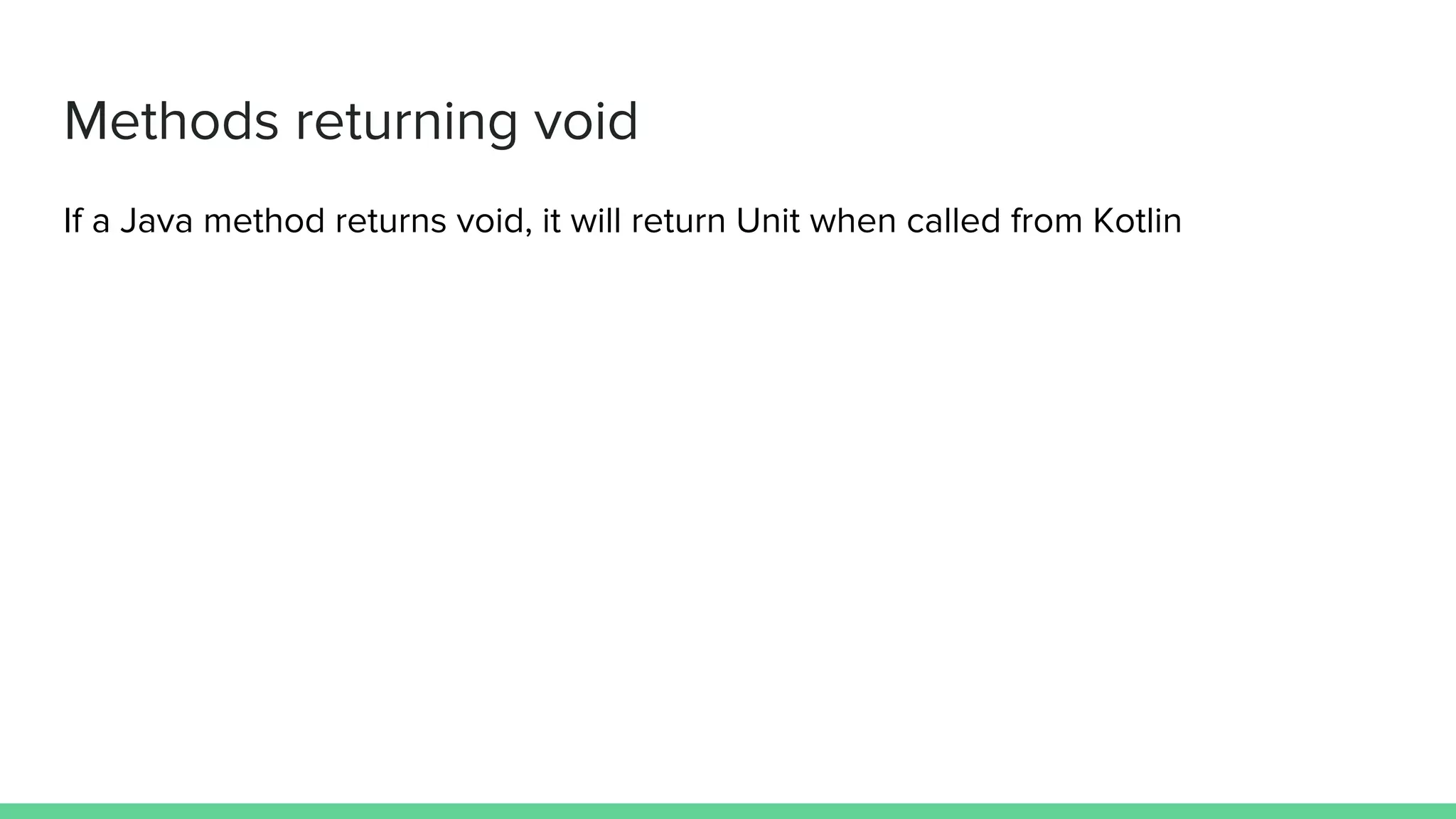
![Null-Safety and Platform Types val list = ArrayList<String>() // non-null (constructor result) list.add("Item") val size = list.size // non-null (primitive int) val item = list[0] // platform type inferred (ordinary Java object) item.substring(1) // allowed, may throw an exception if item == null val nullable: String? = item // allowed, always works val notNull: String = item // allowed, may fail at runtime](https://image.slidesharecdn.com/1kotlinvs-171203183100/75/1-kotlin-vs-java-some-java-issues-addressed-in-kotlin-14-2048.jpg)
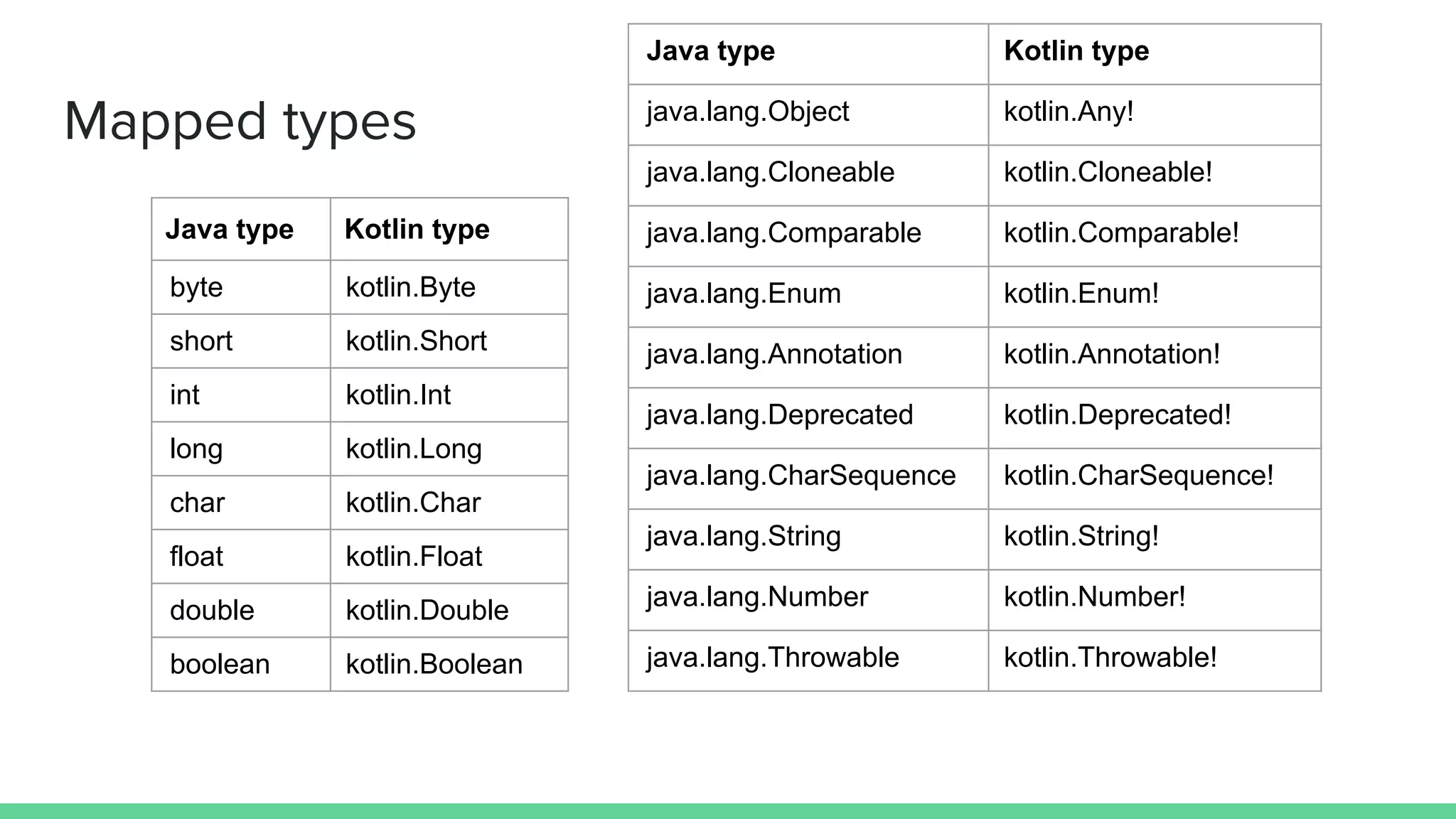
![Mapped types Java type Kotlin type java.lang.Byte kotlin.Byte? java.lang.Short kotlin.Short? java.lang.Integer kotlin.Int? java.lang.Long kotlin.Long? java.lang.Character kotlin.Char? java.lang.Float kotlin.Float? java.lang.Double kotlin.Double? java.lang.Boolean kotlin.Boolean? Java type Kotlin type int[] kotlin.IntArray! String[] kotlin.Array<(out) String>!](https://image.slidesharecdn.com/1kotlinvs-171203183100/75/1-kotlin-vs-java-some-java-issues-addressed-in-kotlin-16-2048.jpg)
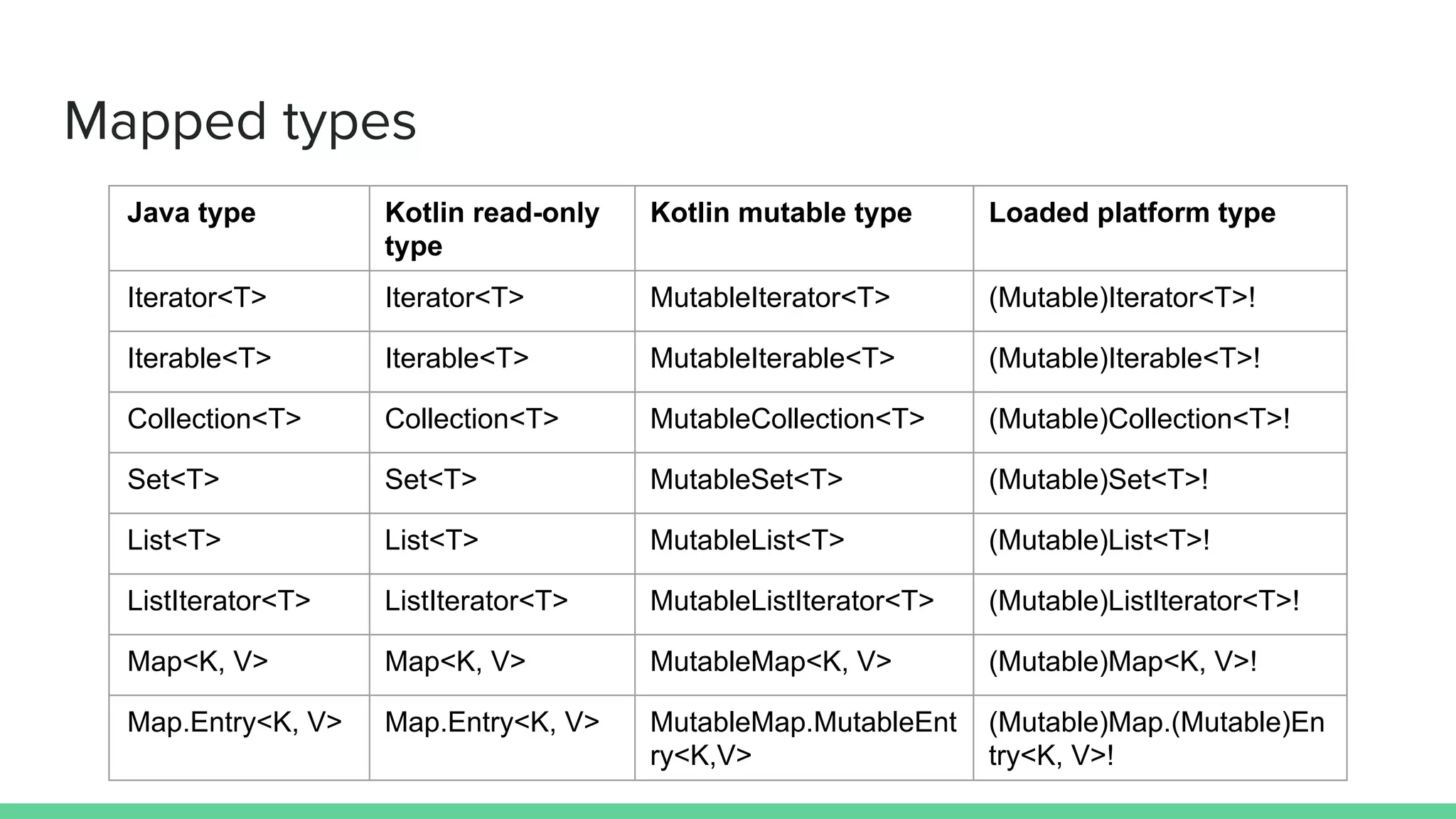
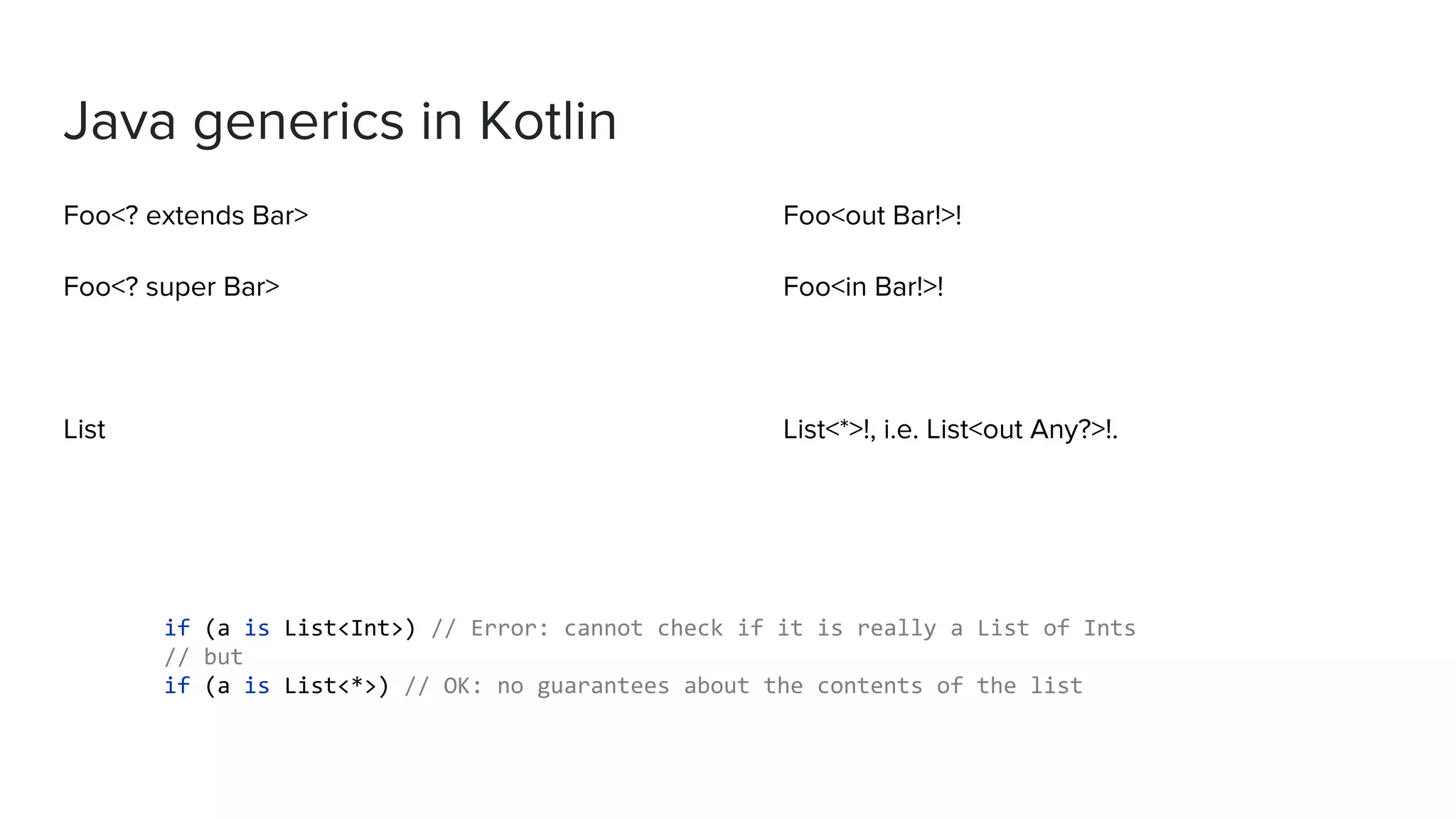
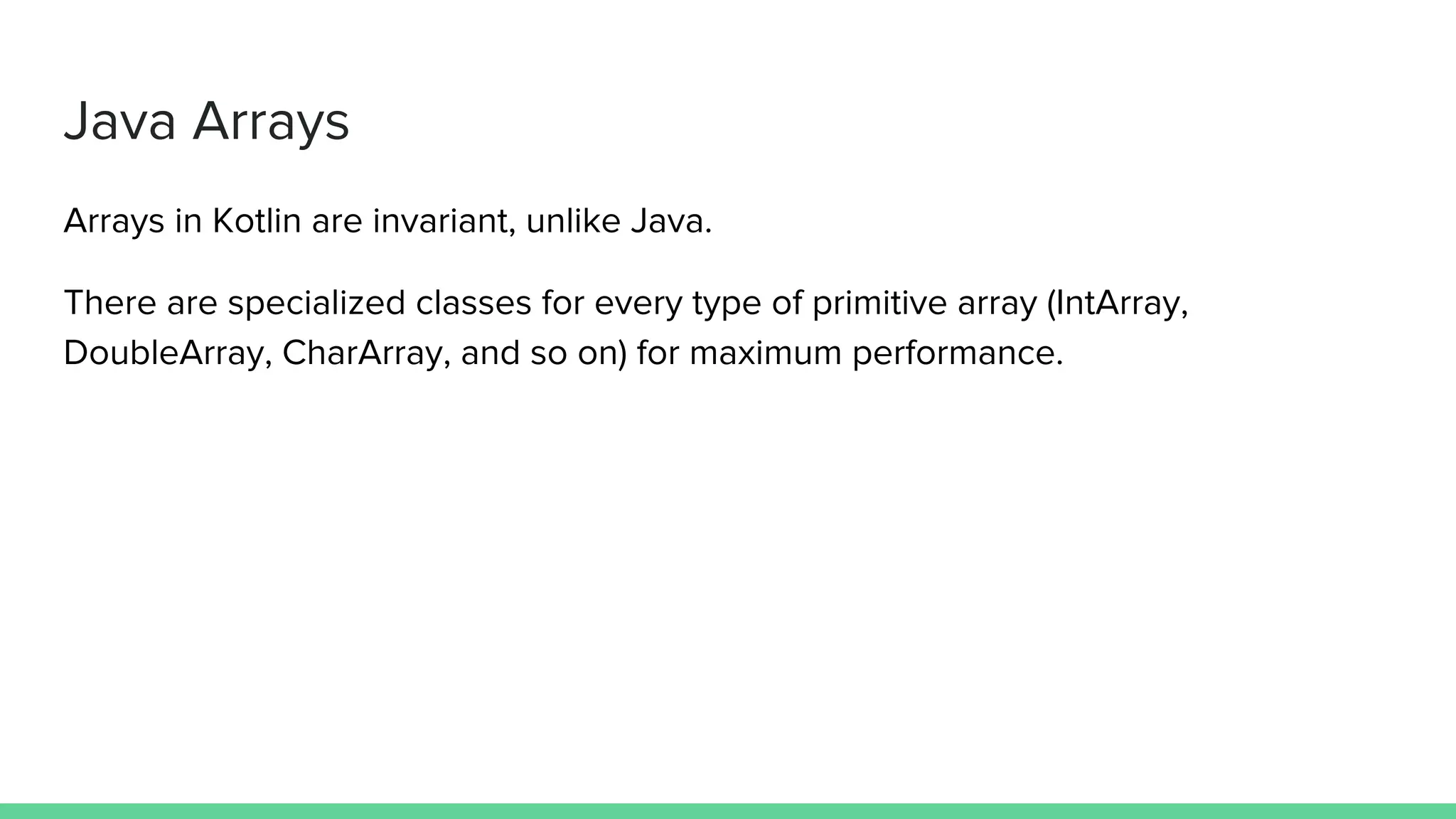
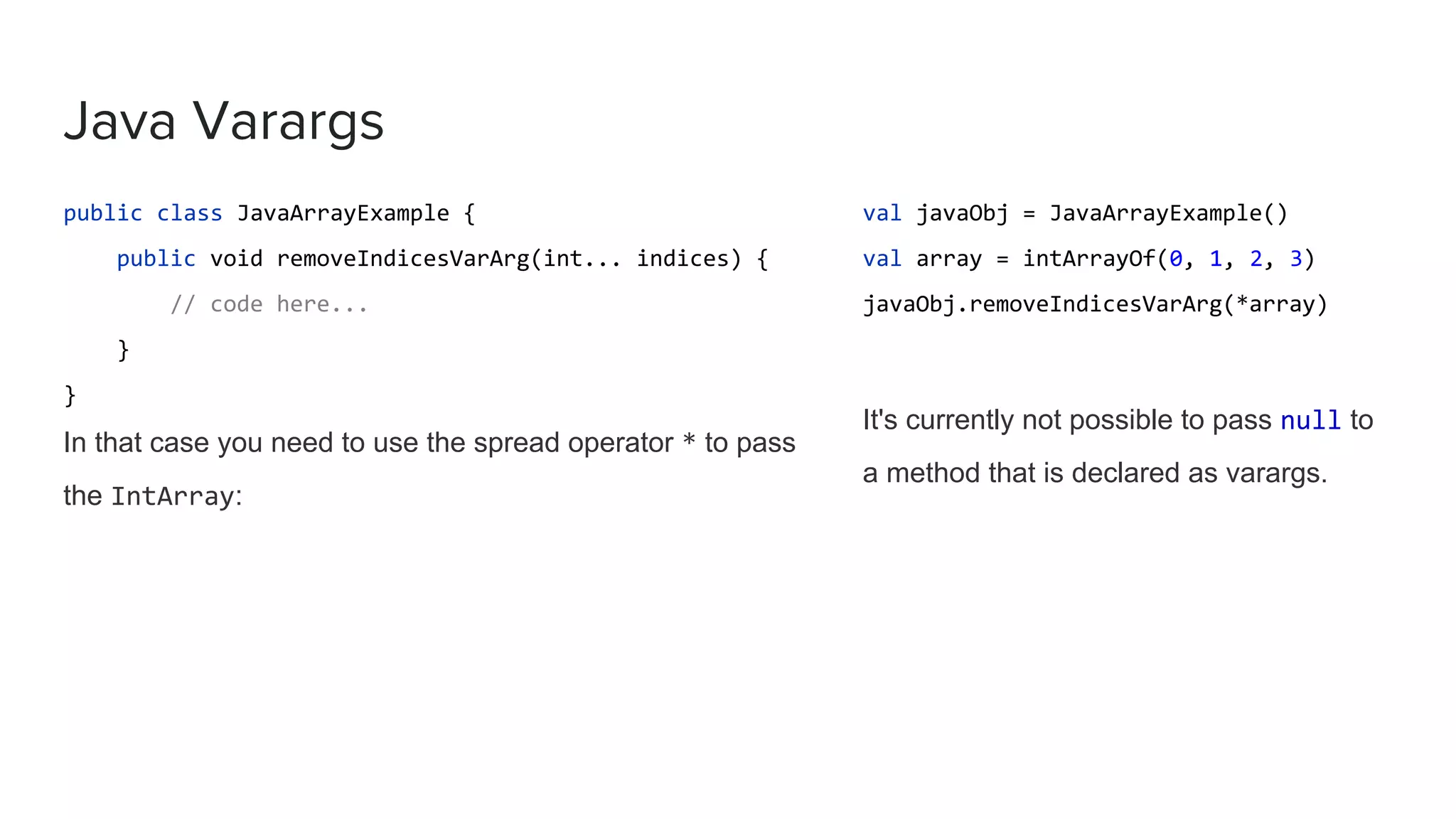
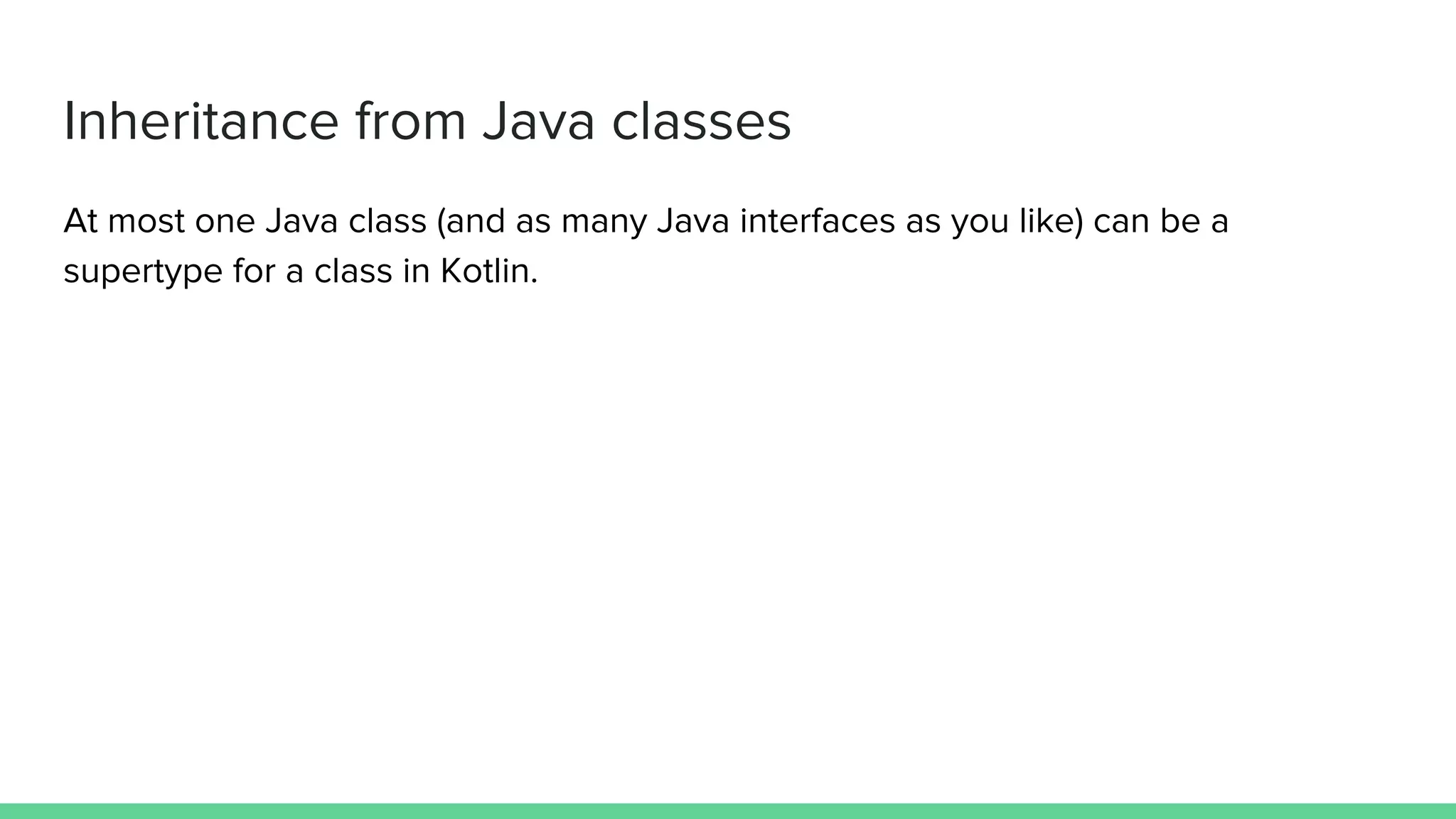
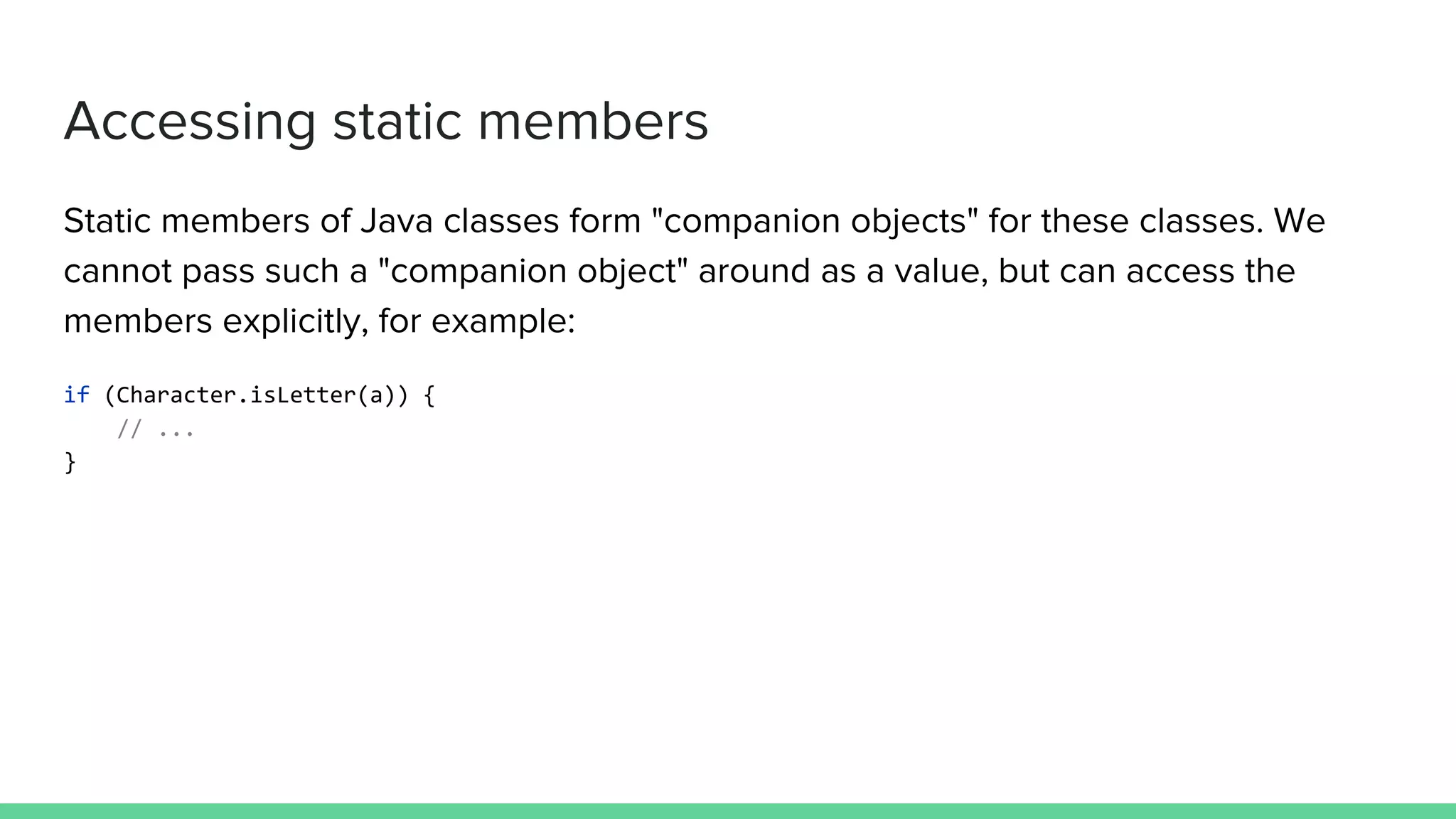
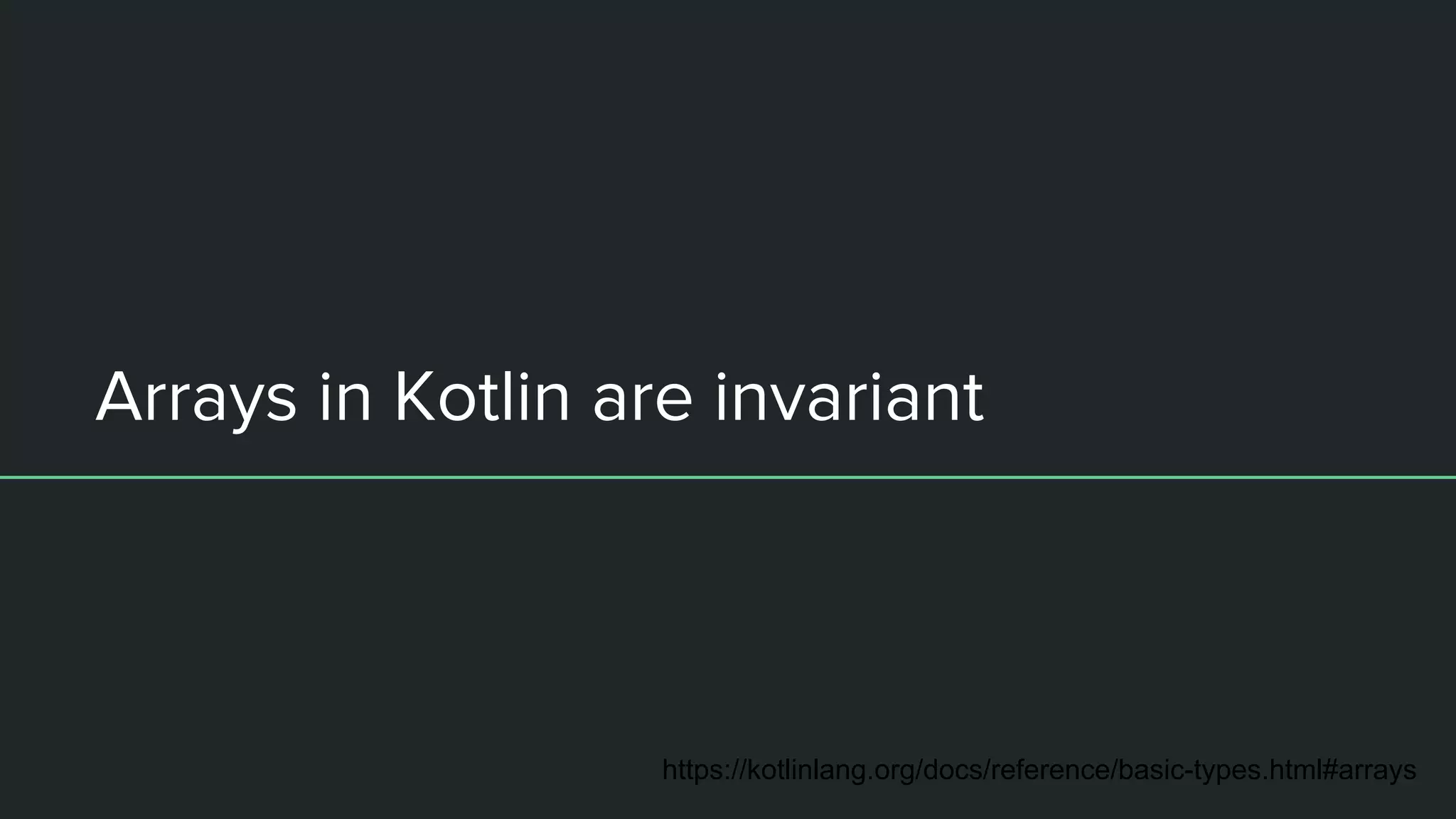
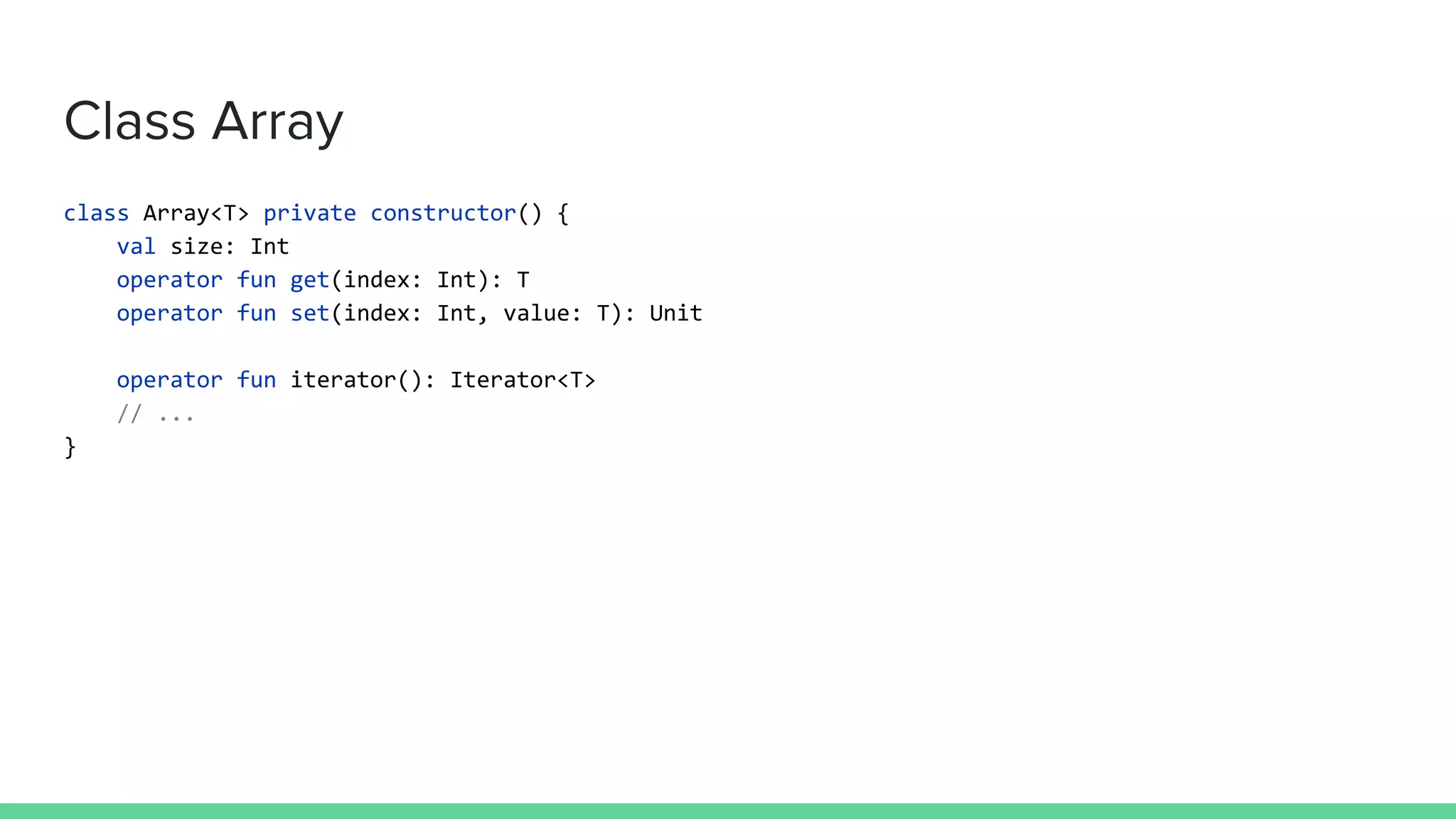
![Create an Array arrayOf(1, 2, 3) creates an array [1, 2, 3] Alternatively, the arrayOfNulls() library function can be used to create an array of a given size filled with null elements // Creates an Array<String> with values ["0", "1", "4", "9", "16"] val asc = Array(5, { i -> (i * i).toString() })](https://image.slidesharecdn.com/1kotlinvs-171203183100/75/1-kotlin-vs-java-some-java-issues-addressed-in-kotlin-25-2048.jpg)
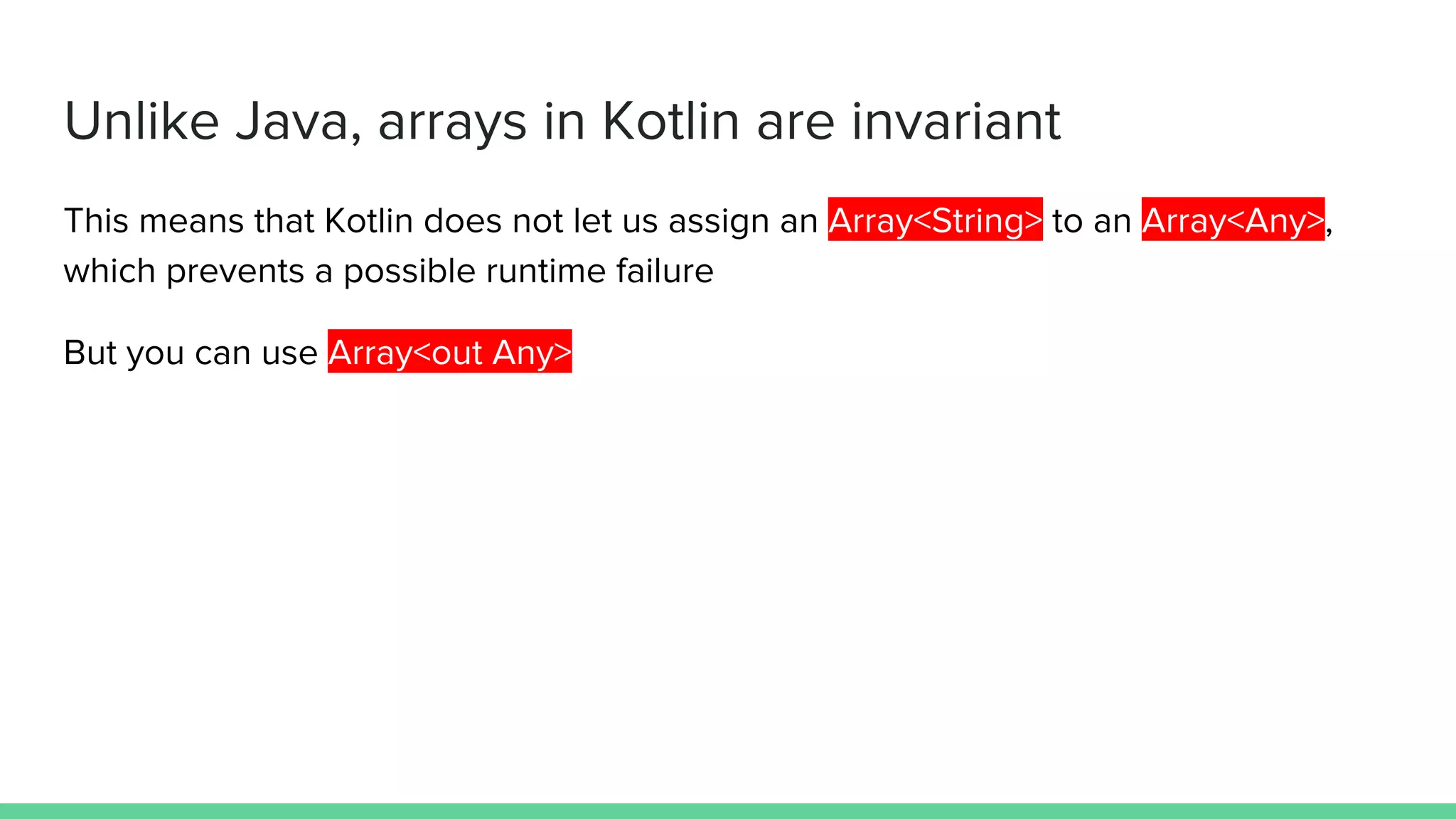
![Classes to represent arrays of primitive types — ByteArray — ShortArray — IntArray — and so on val x: IntArray = intArrayOf(1, 2, 3) x[0] = x[1] + x[2]](https://image.slidesharecdn.com/1kotlinvs-171203183100/75/1-kotlin-vs-java-some-java-issues-addressed-in-kotlin-27-2048.jpg)
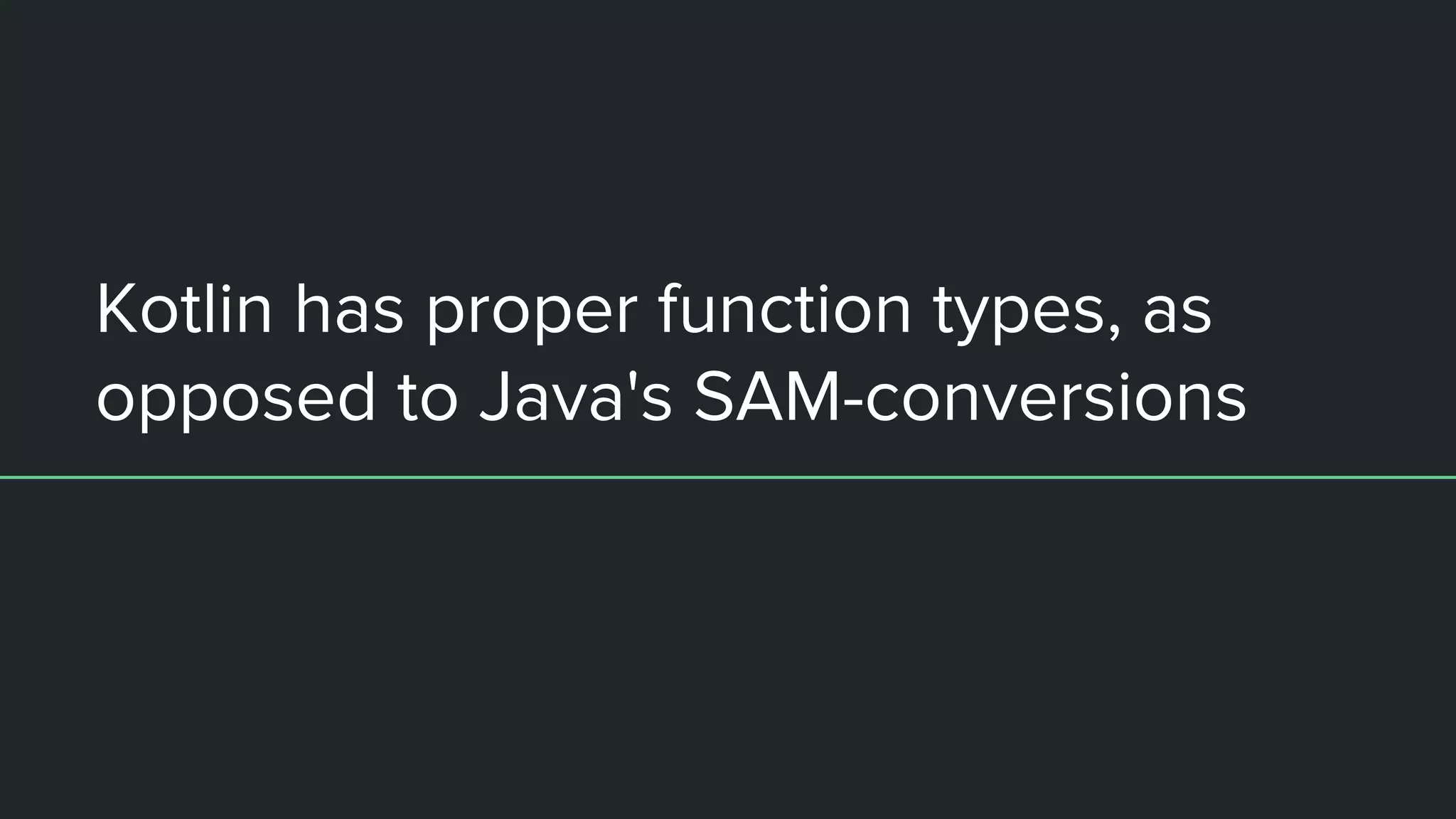
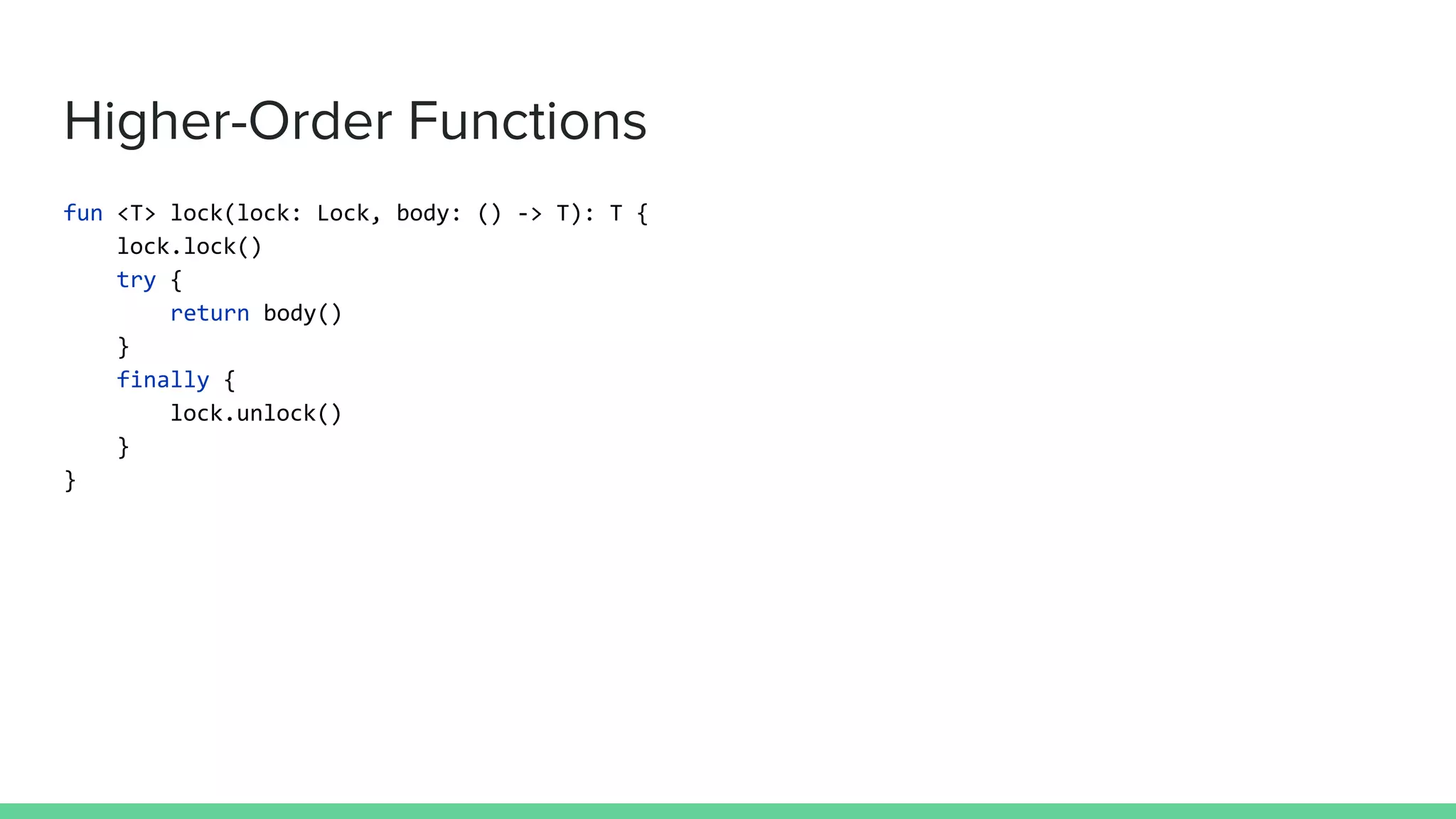
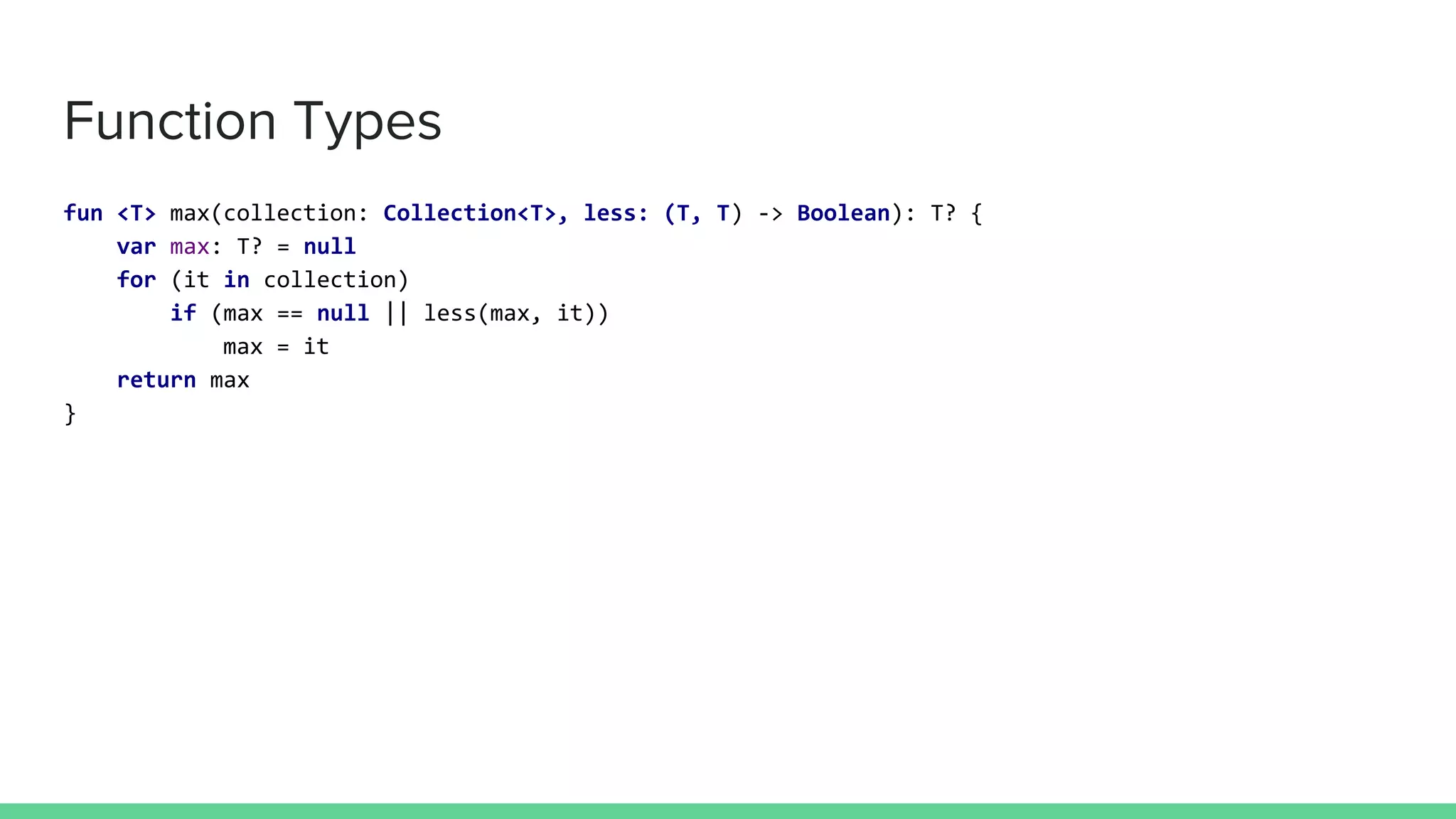

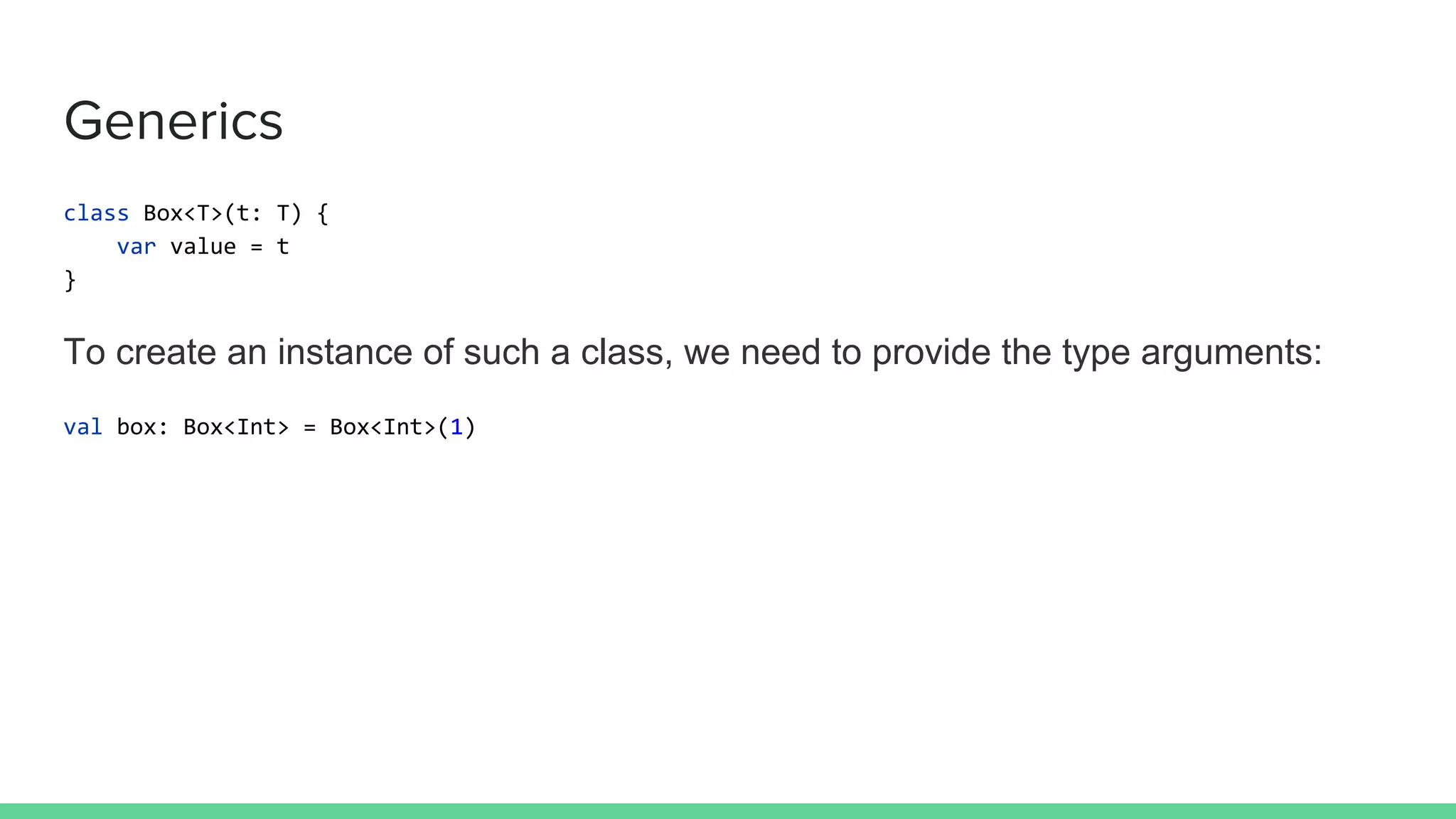
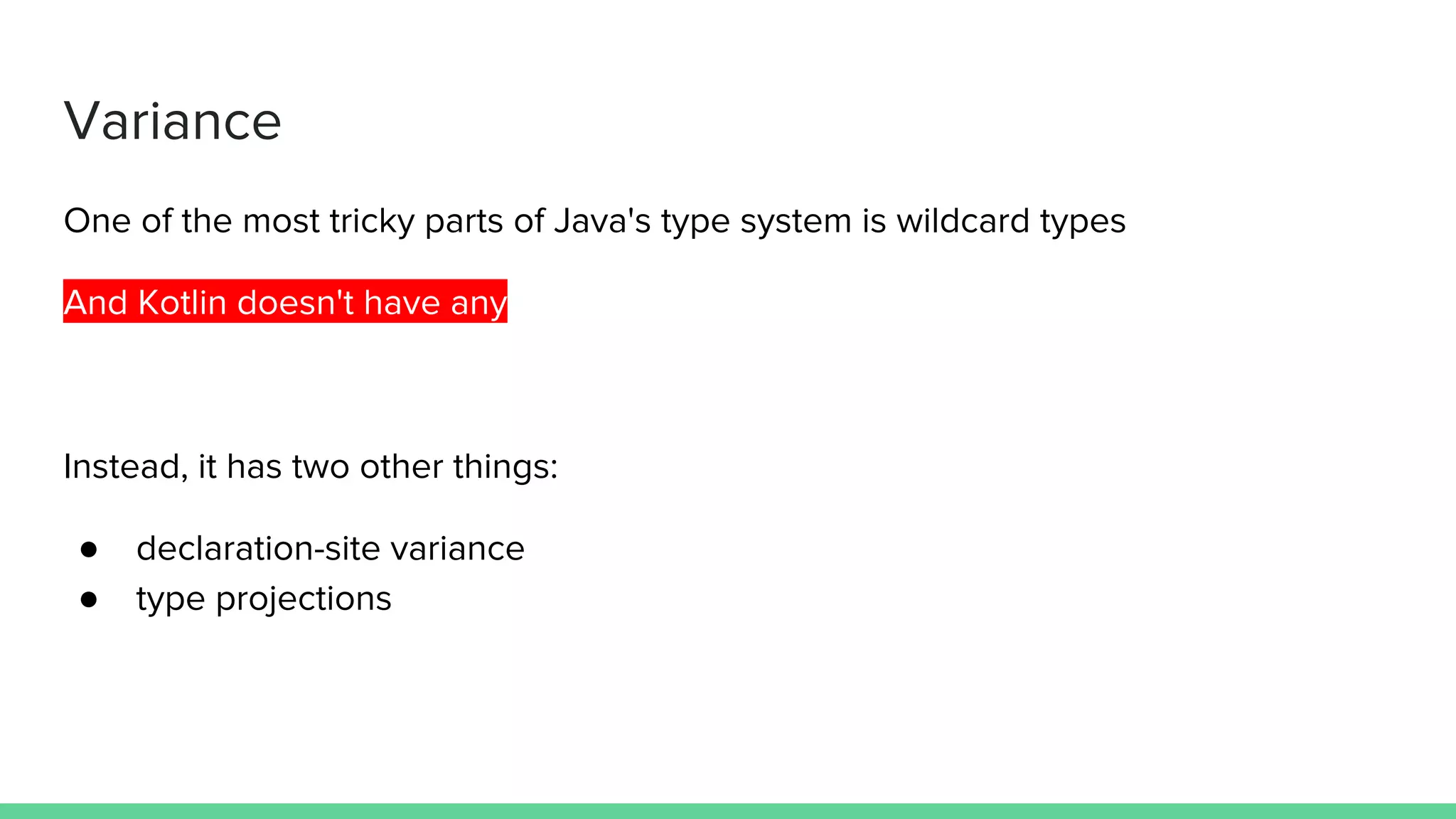
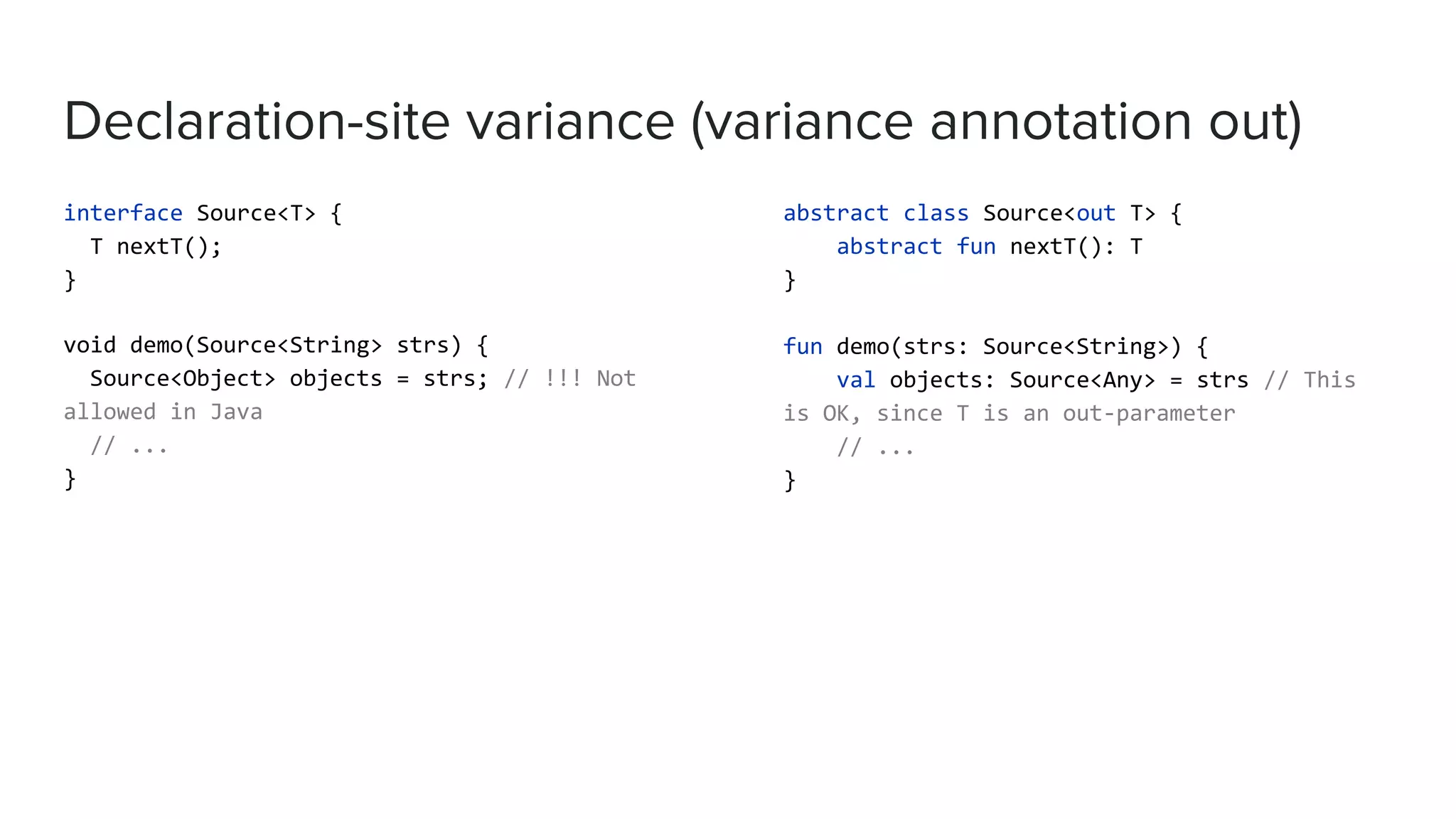
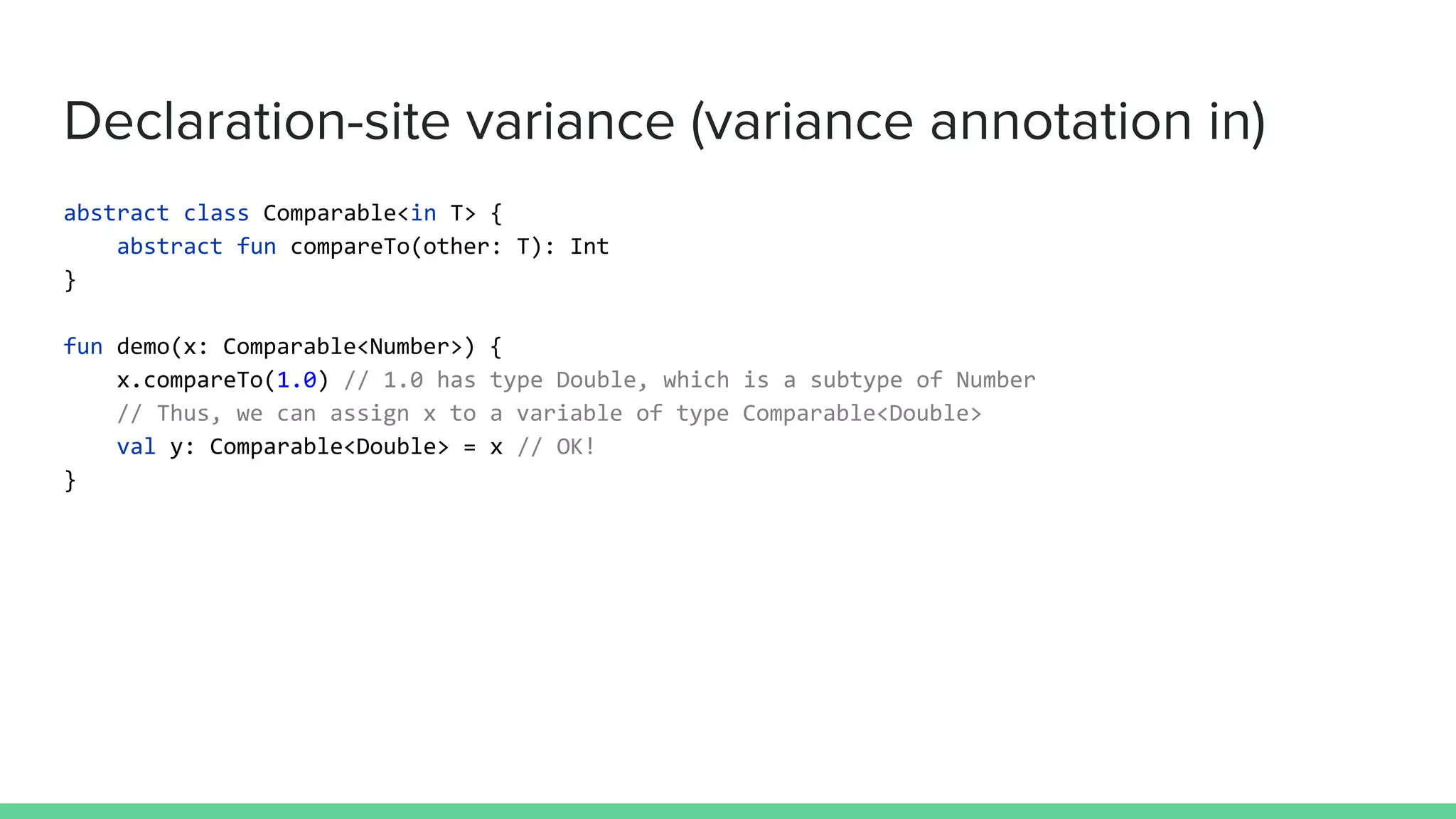
![Use-site variance: Type projections class Array<T>(val size: Int) { fun get(index: Int): T { /* ... */ } fun set(index: Int, value: T) { /* ... */ } } fun copy(from: Array<Any>, to: Array<Any>) { assert(from.size == to.size) for (i in from.indices) to[i] = from[i] } val ints: Array<Int> = arrayOf(1, 2, 3) val any = Array<Any>(3) { "" } copy(ints, any) // Error: expects (Array<Any>, Array<Any>). fun copy(from: Array<out Any>, to: Array<Any>) { // ... }](https://image.slidesharecdn.com/1kotlinvs-171203183100/75/1-kotlin-vs-java-some-java-issues-addressed-in-kotlin-36-2048.jpg)
